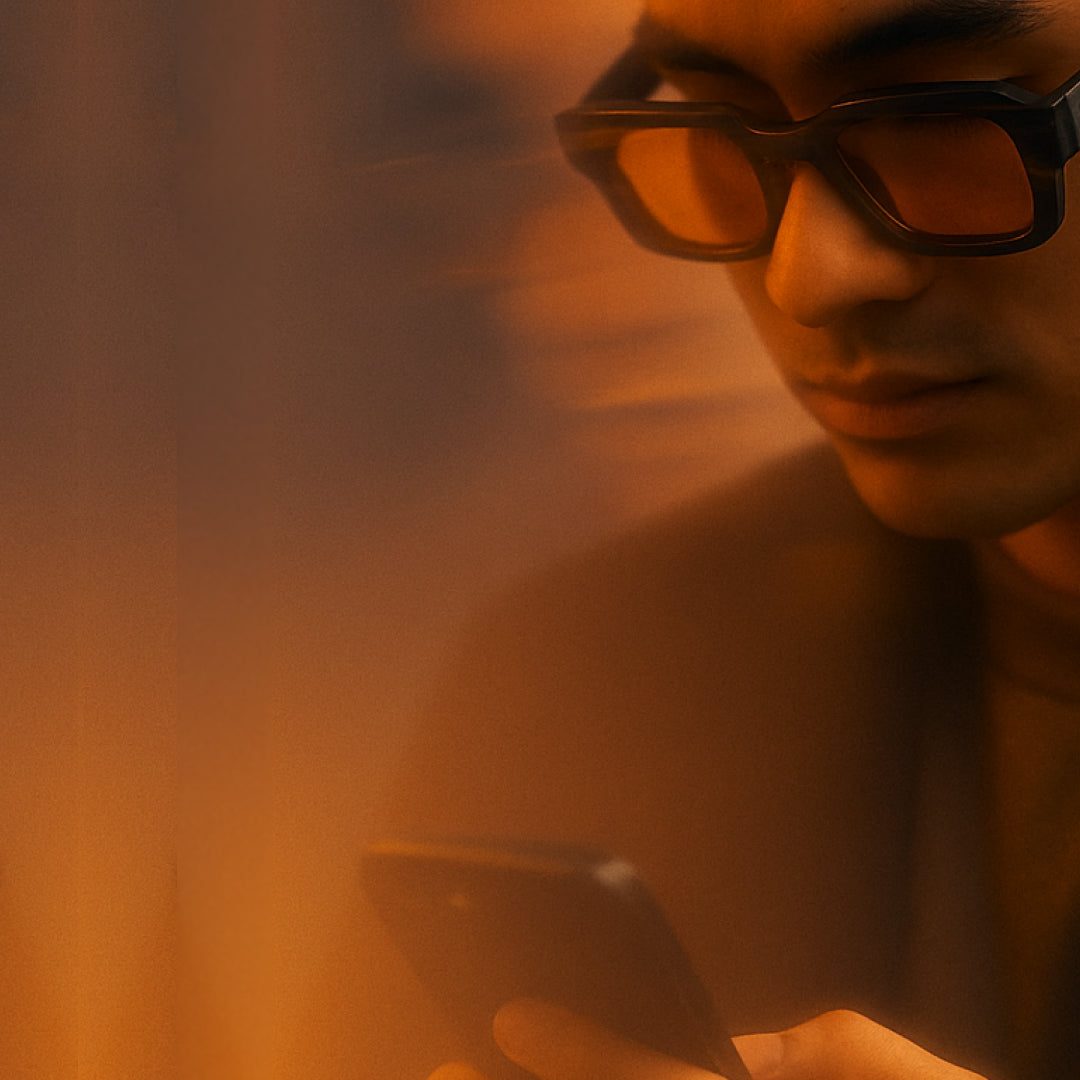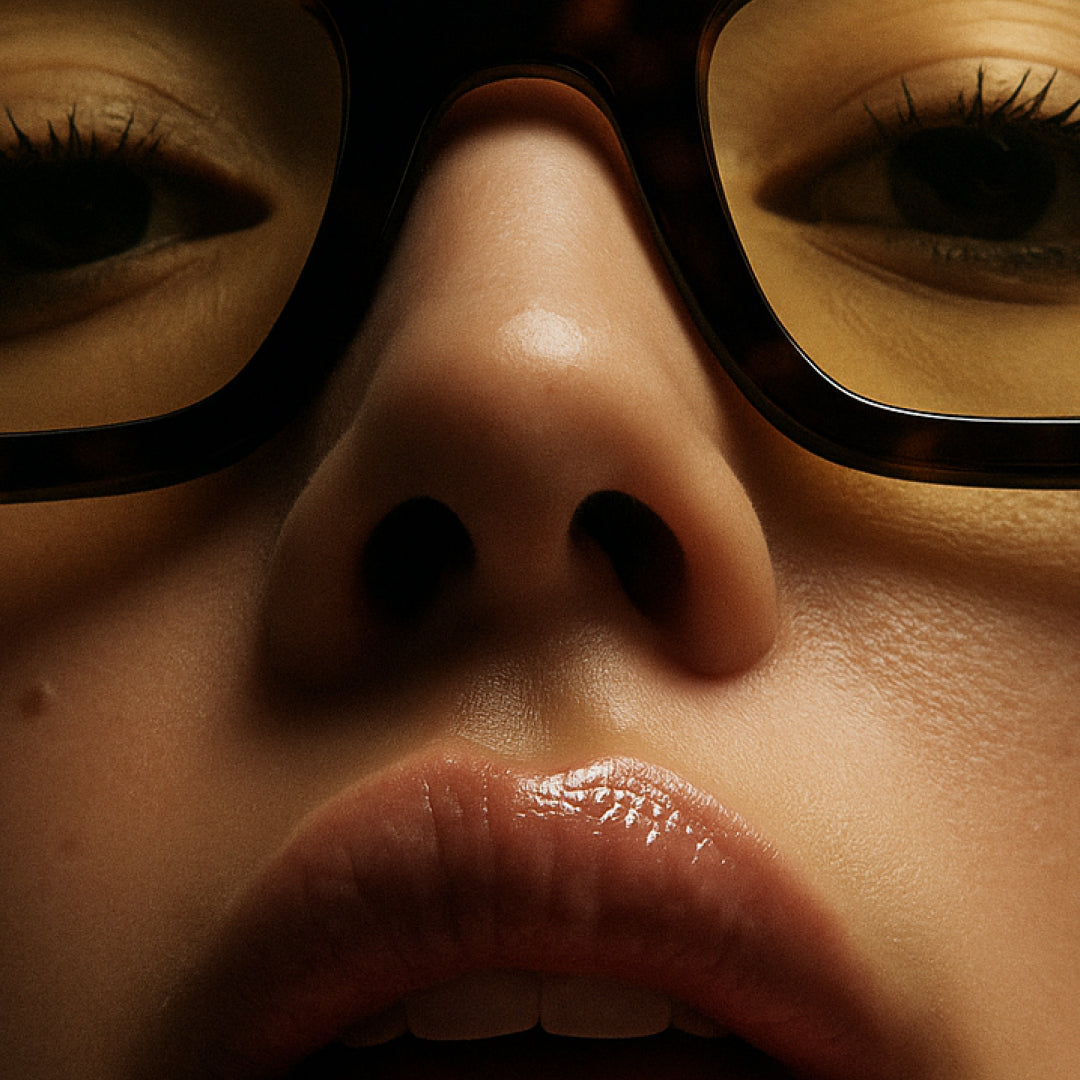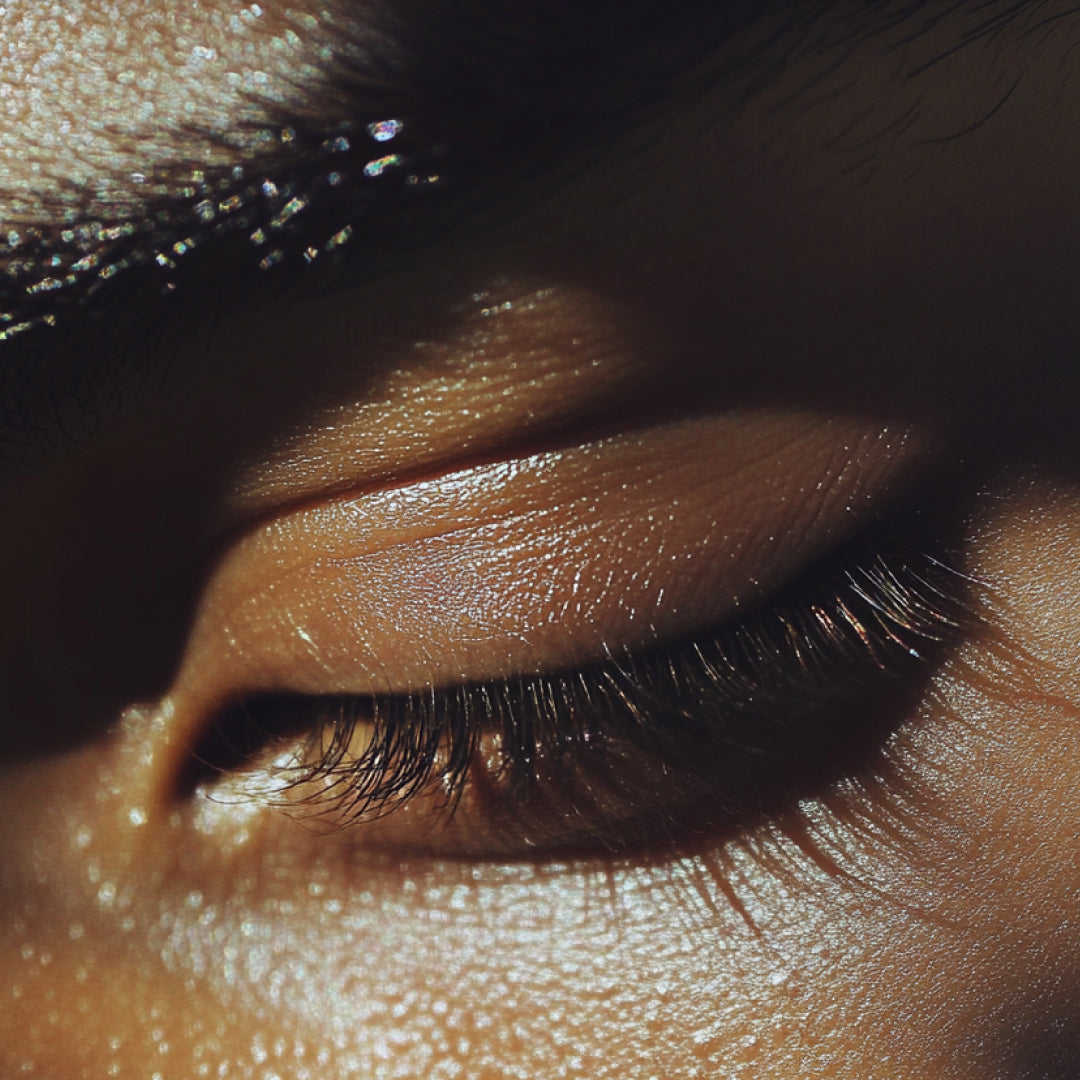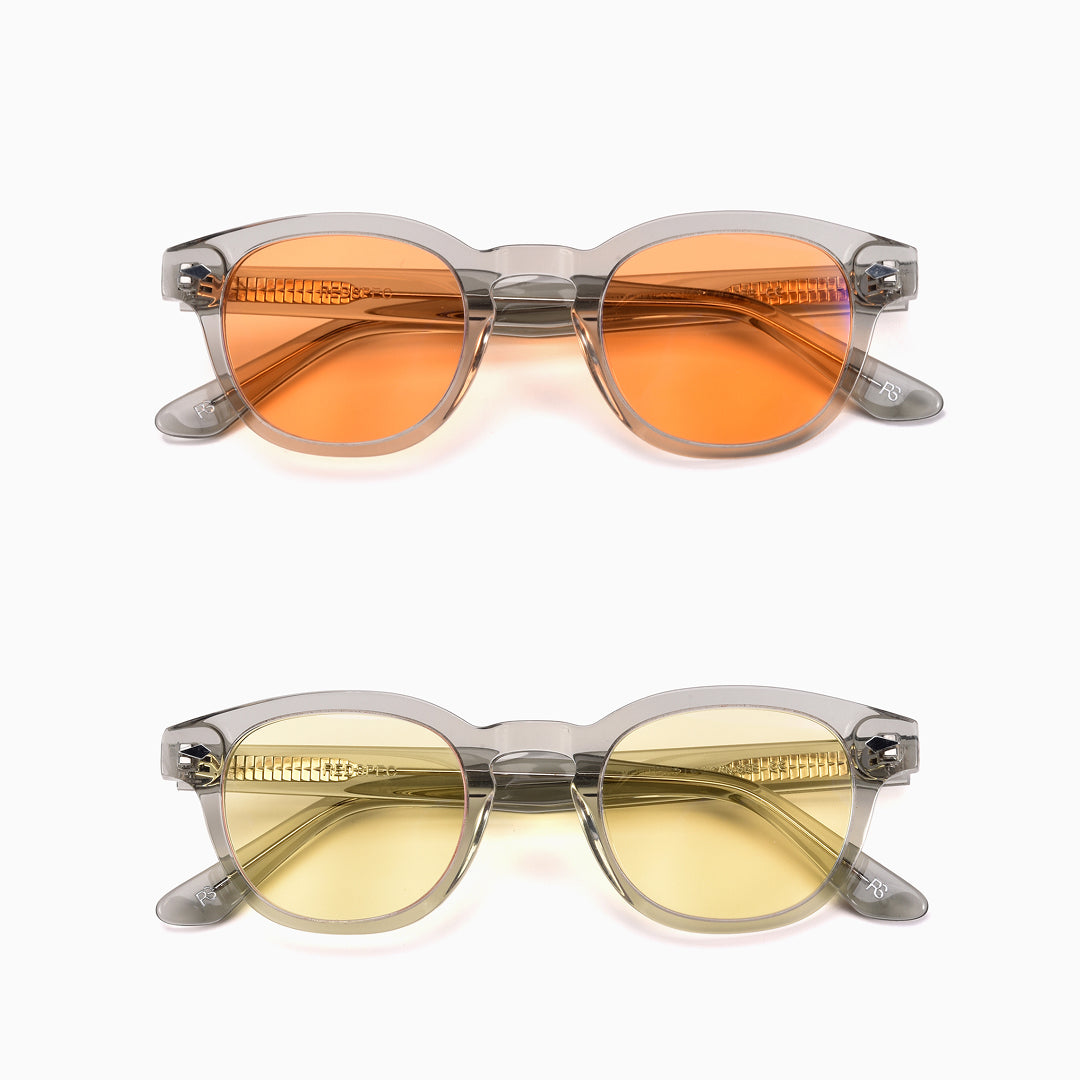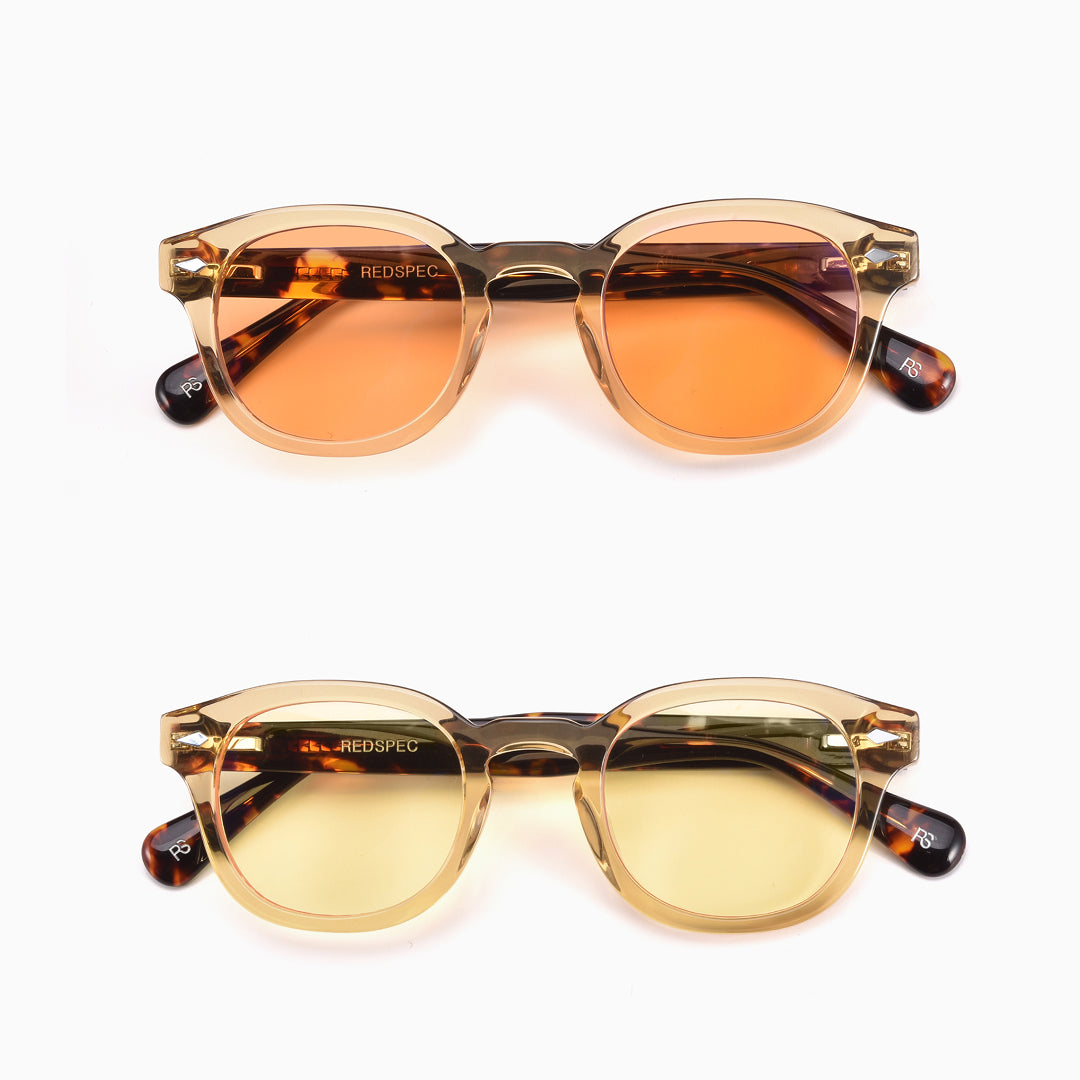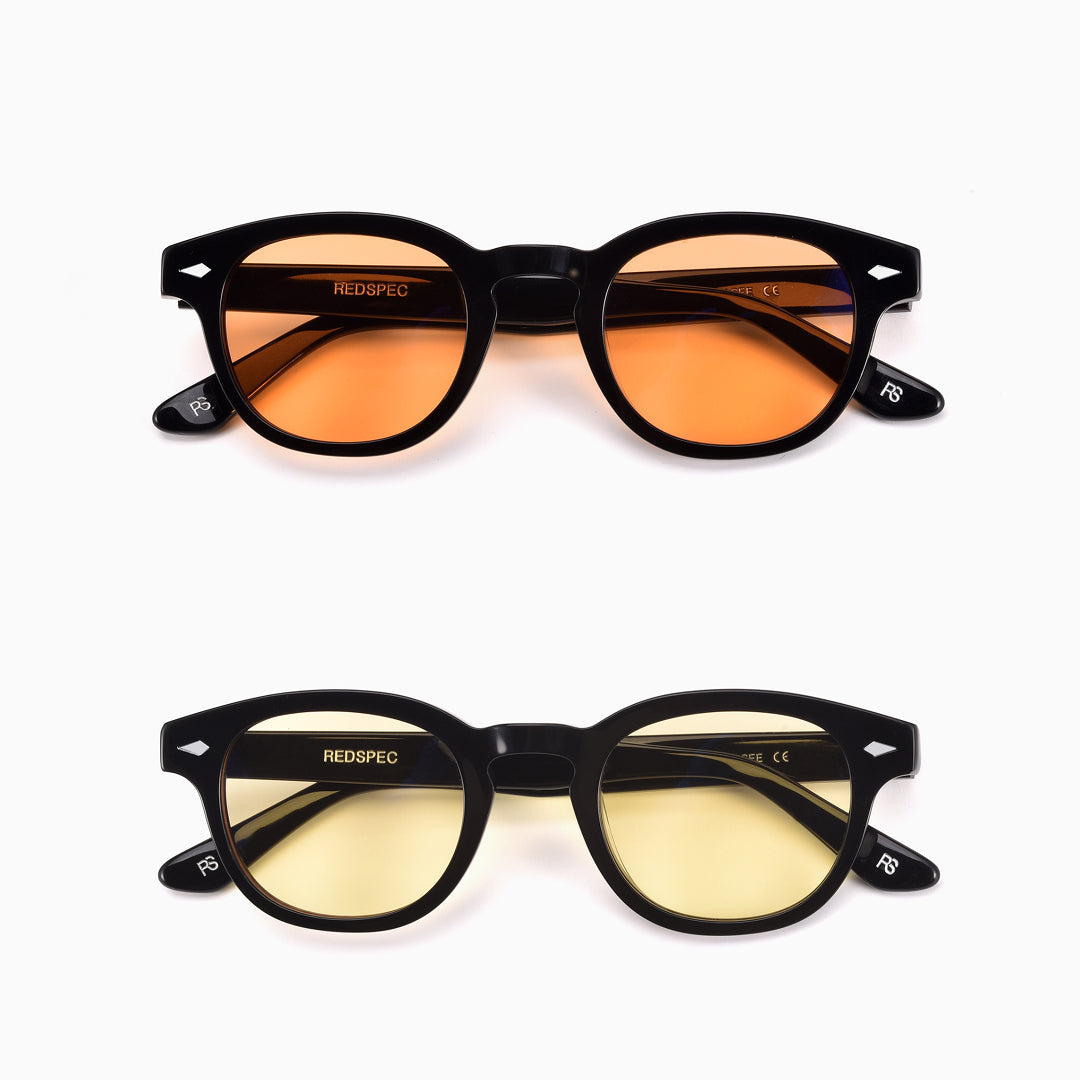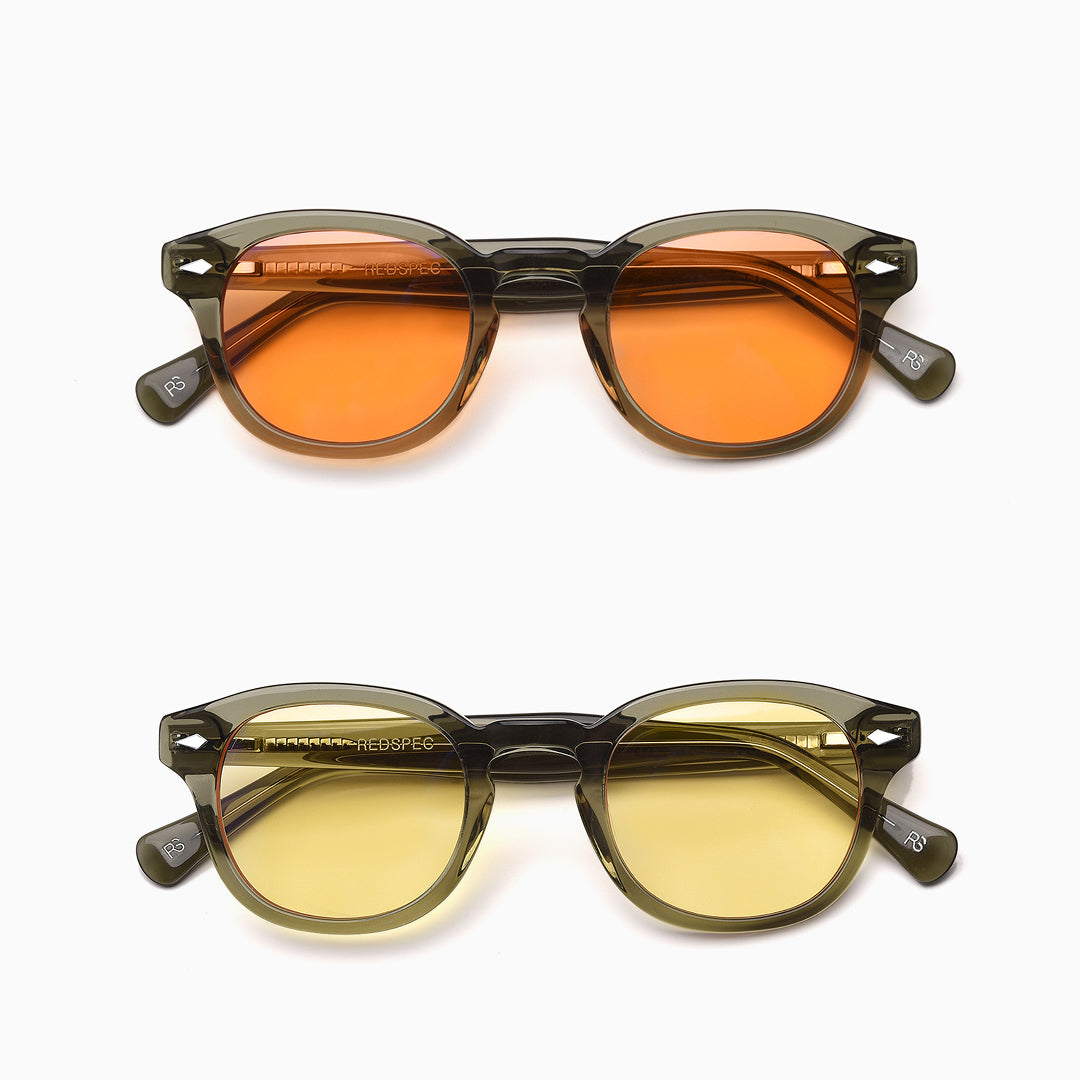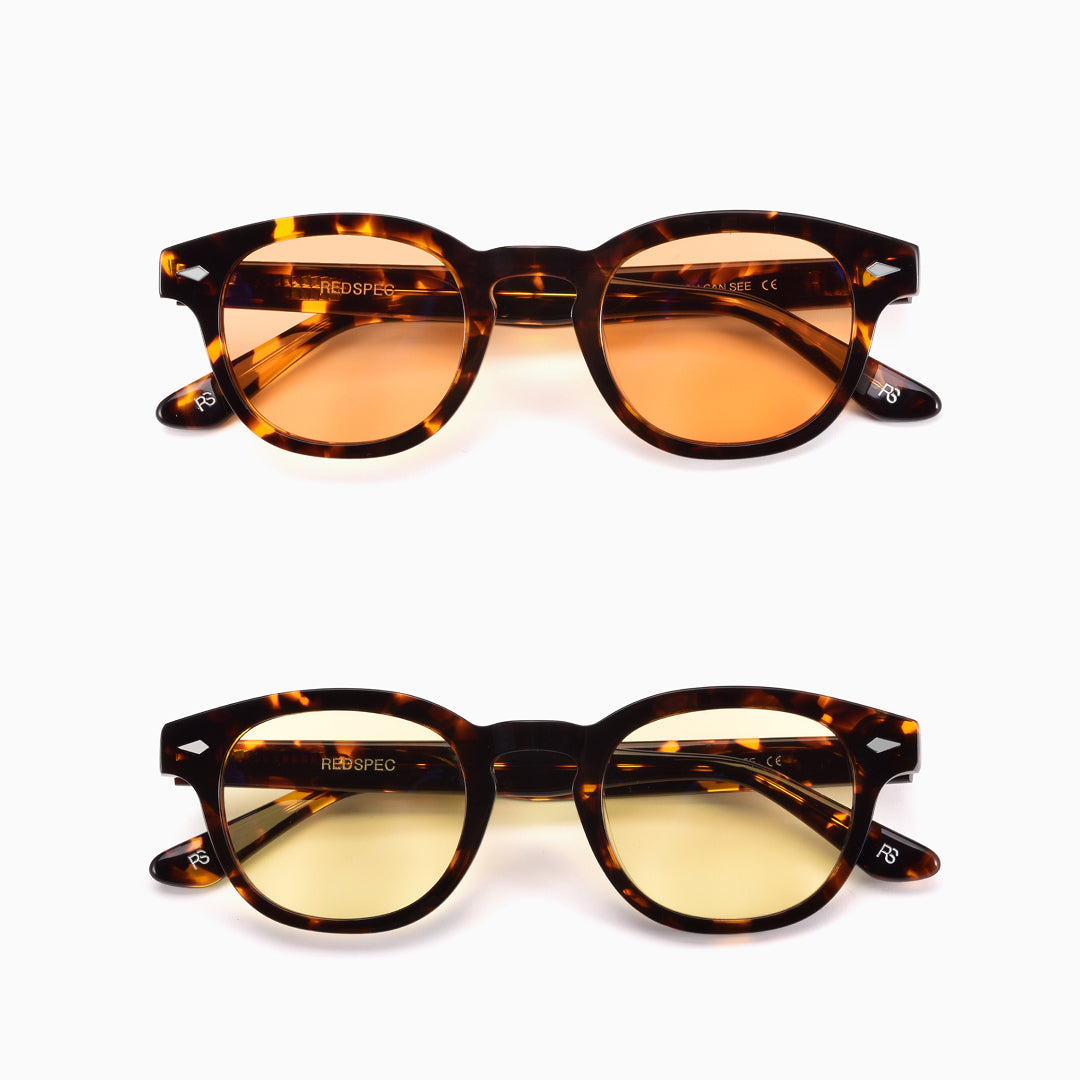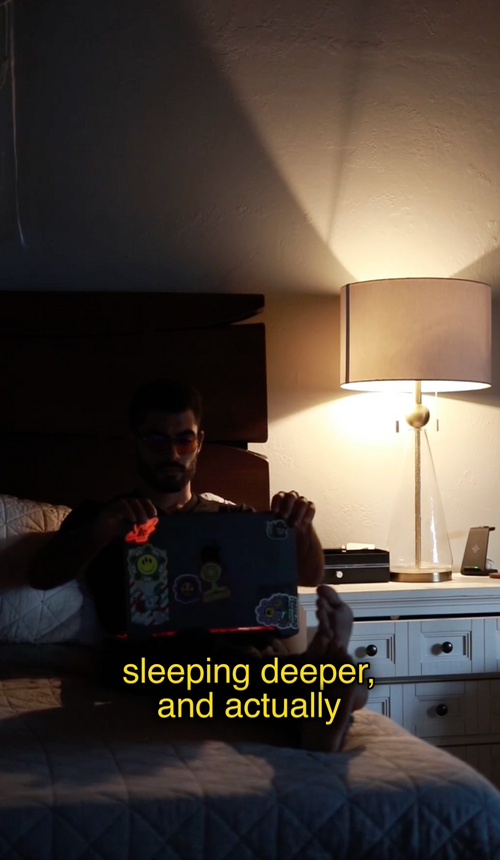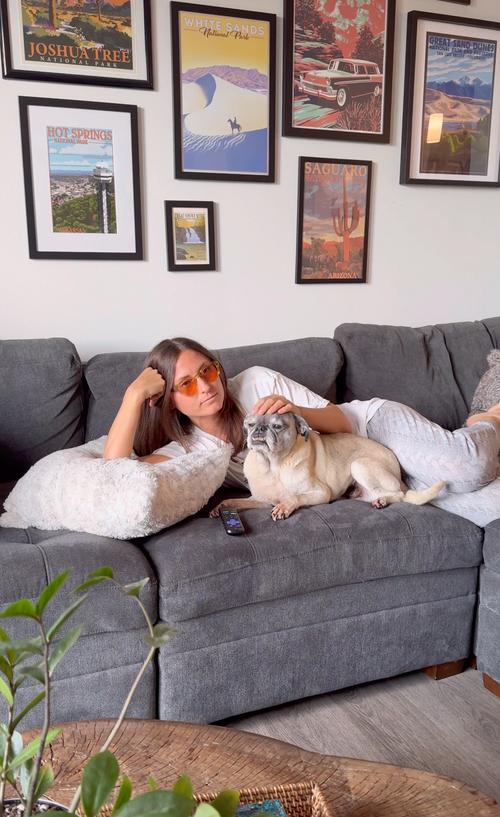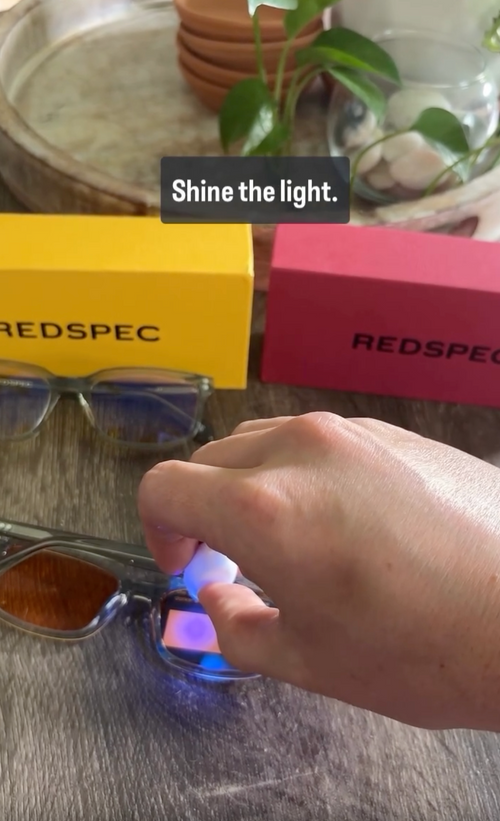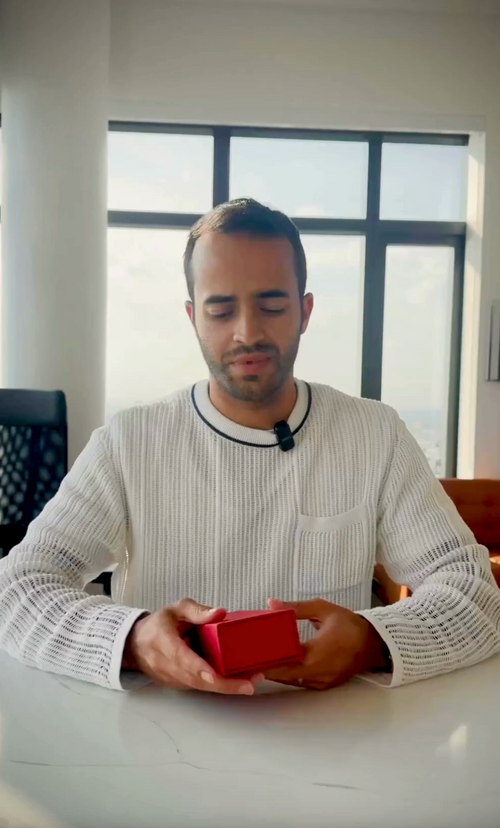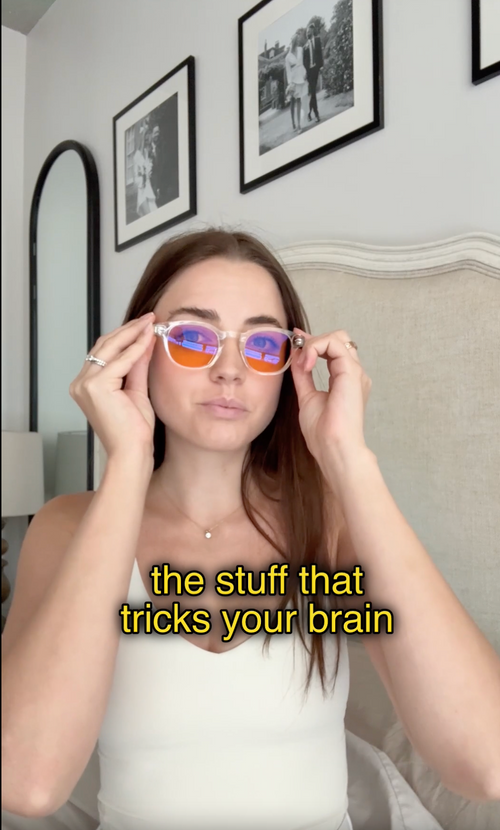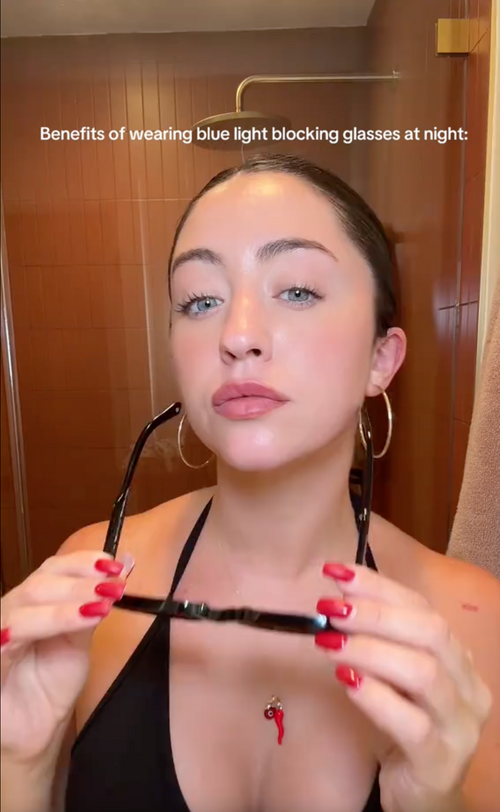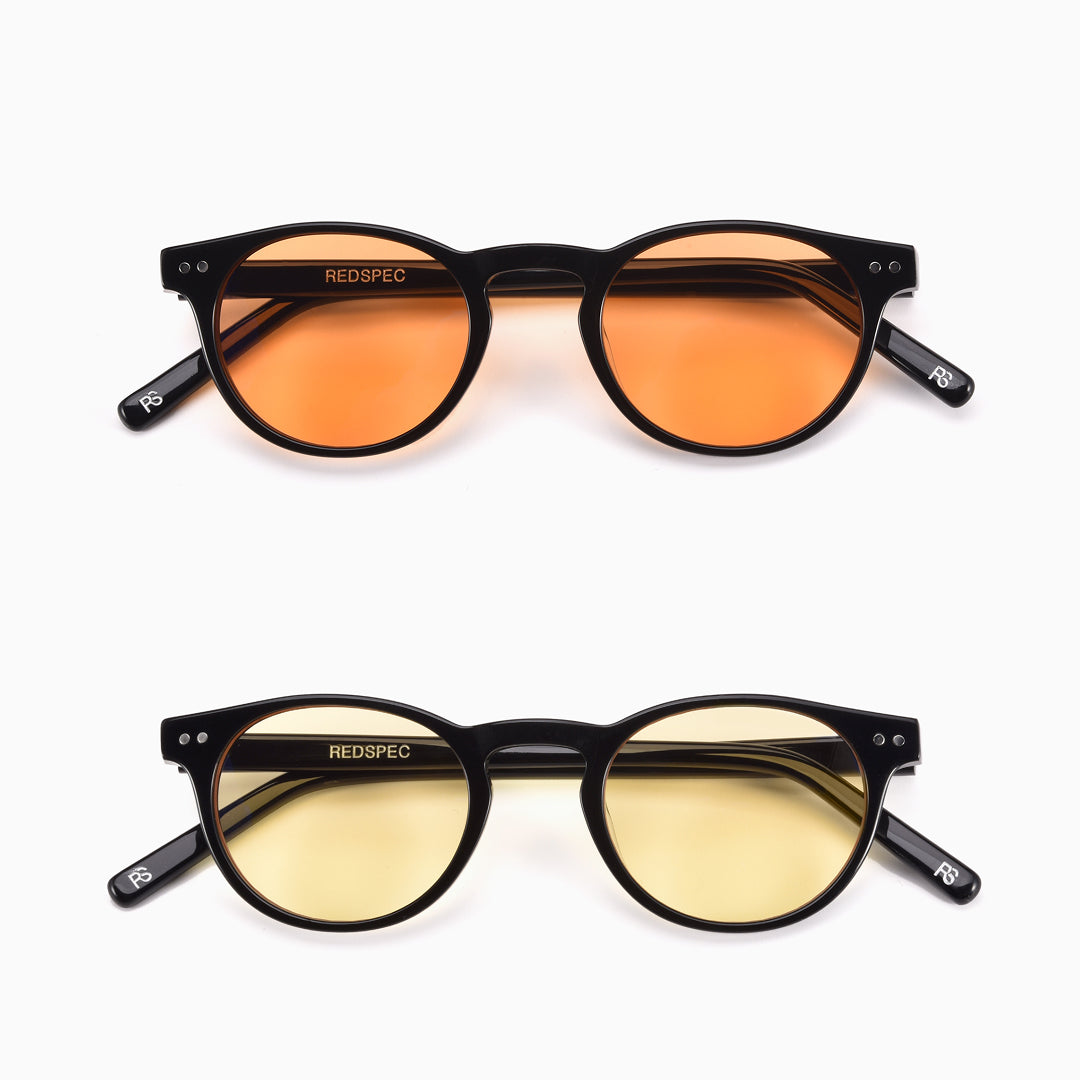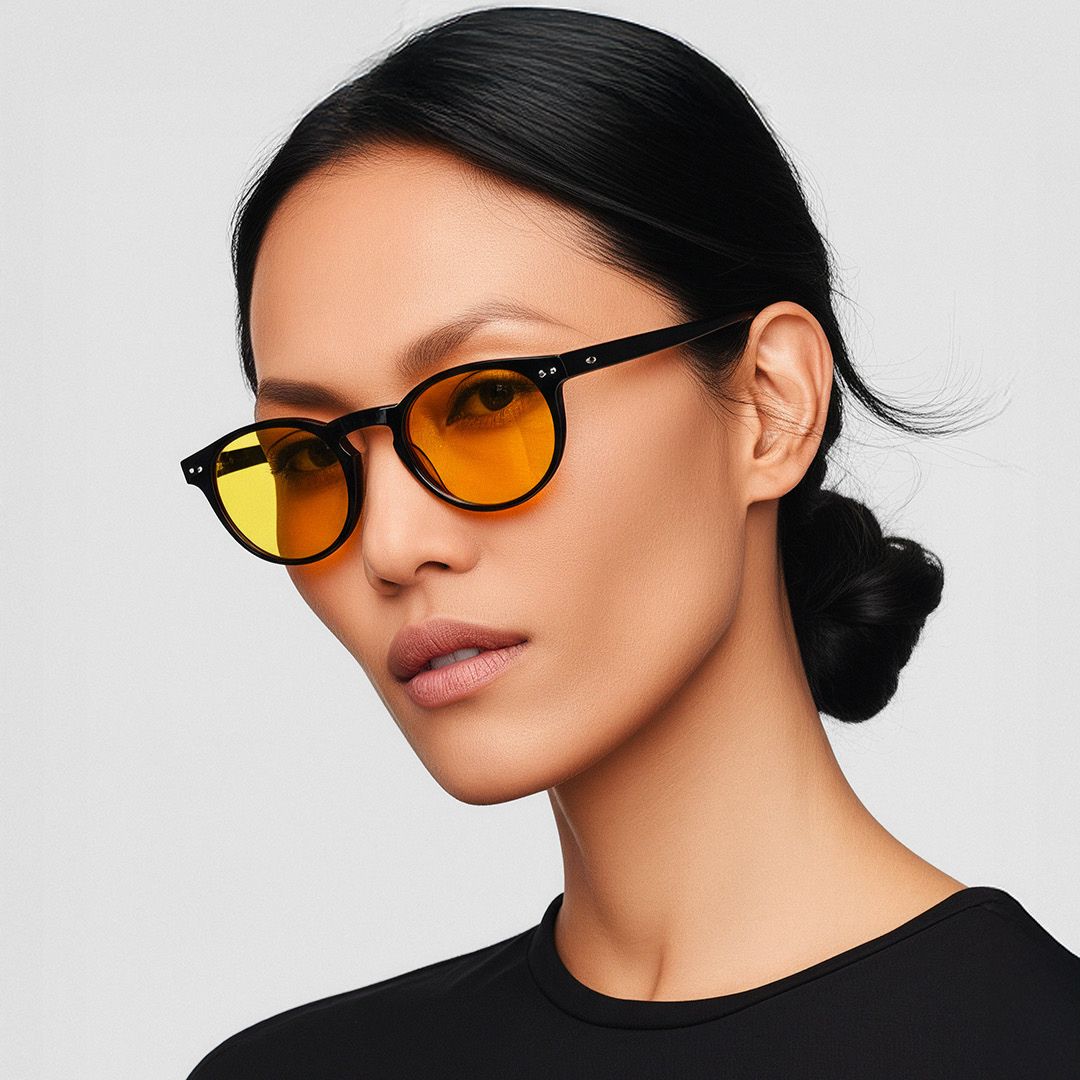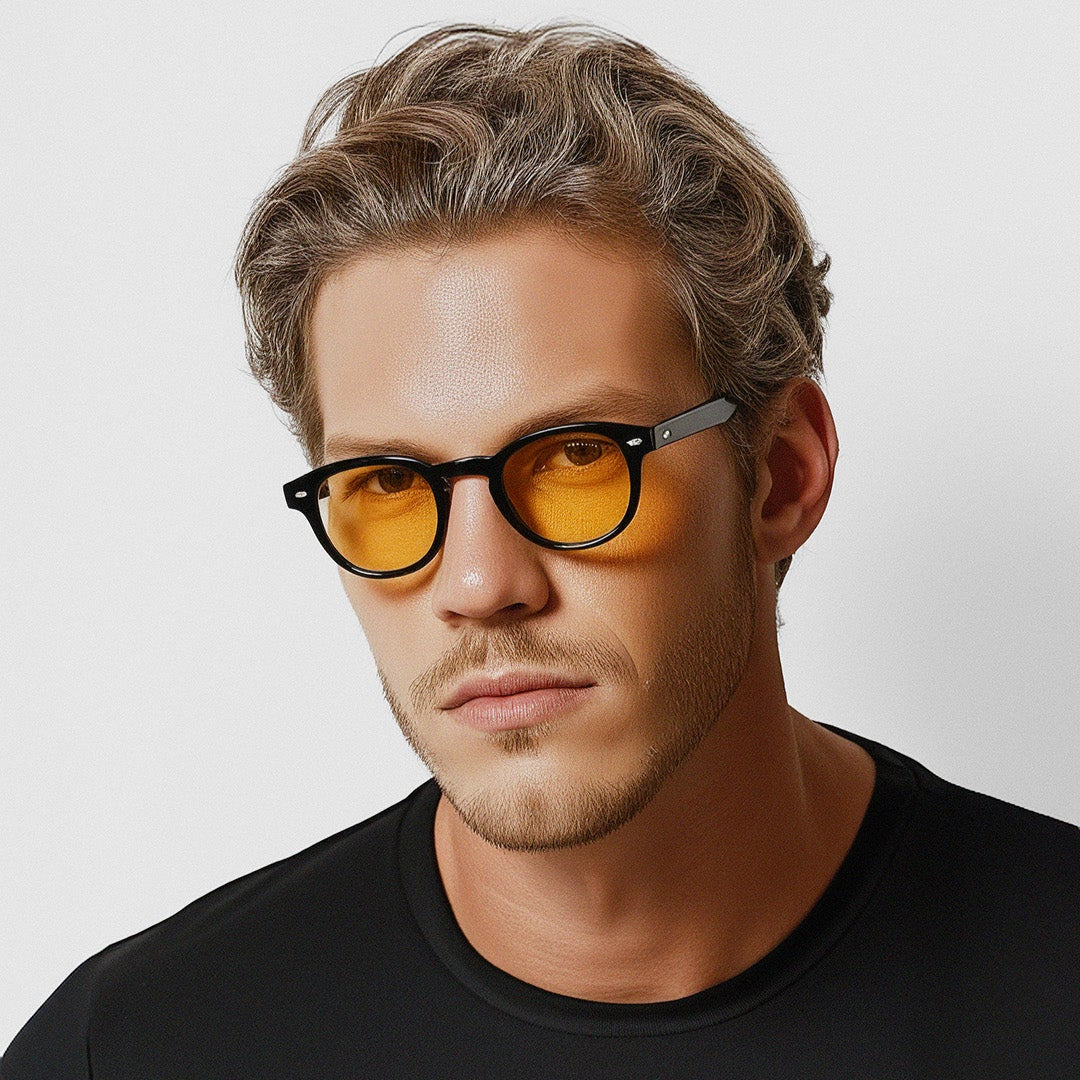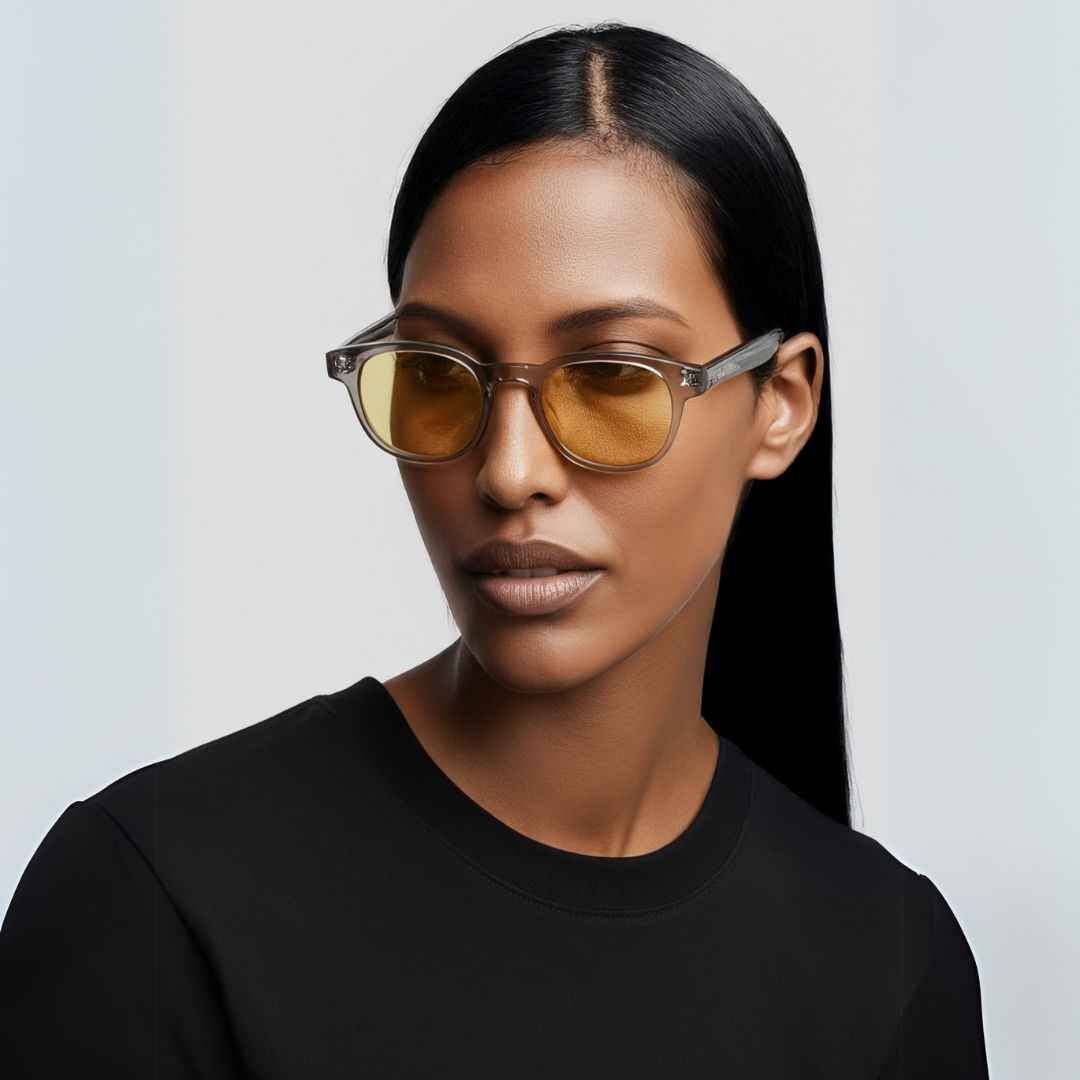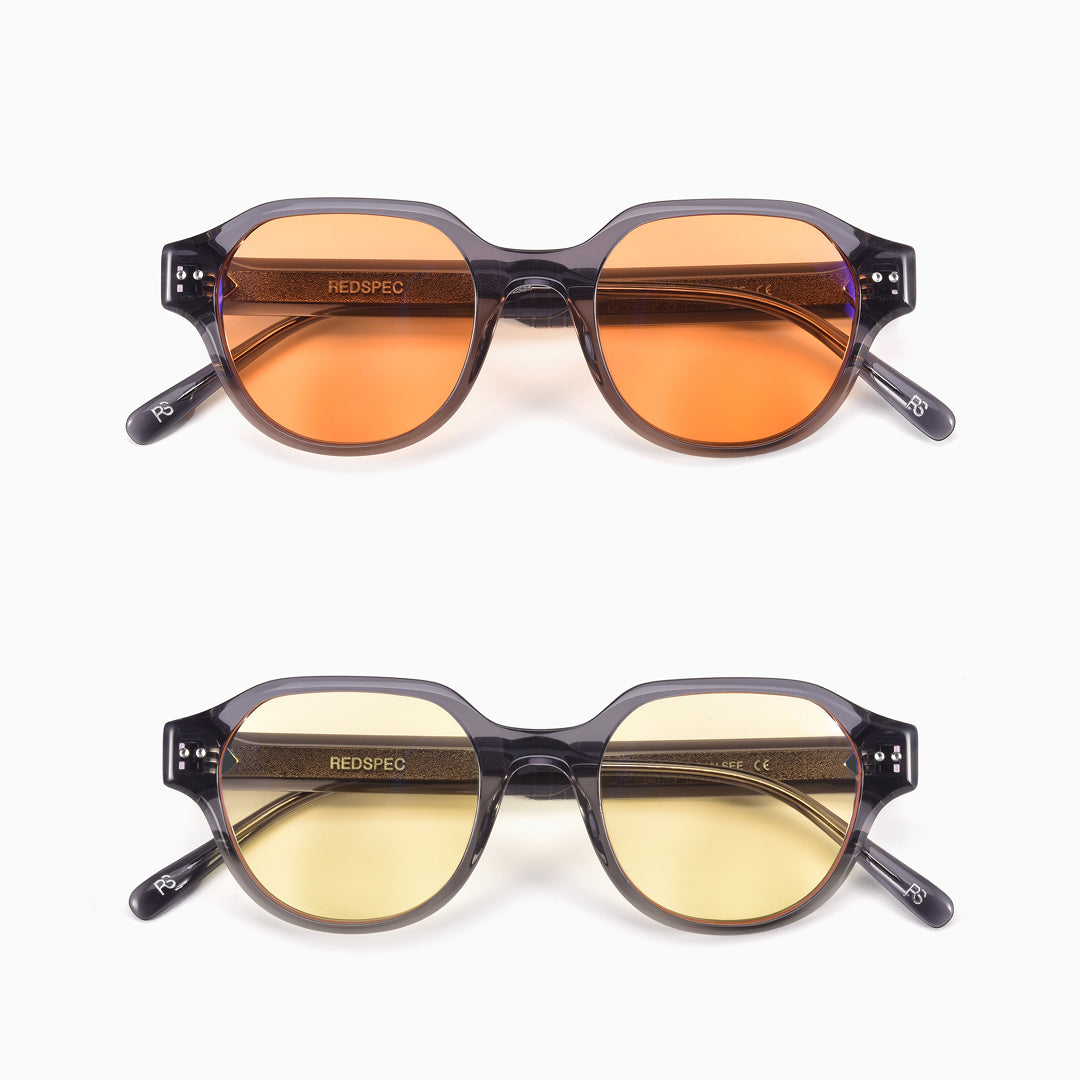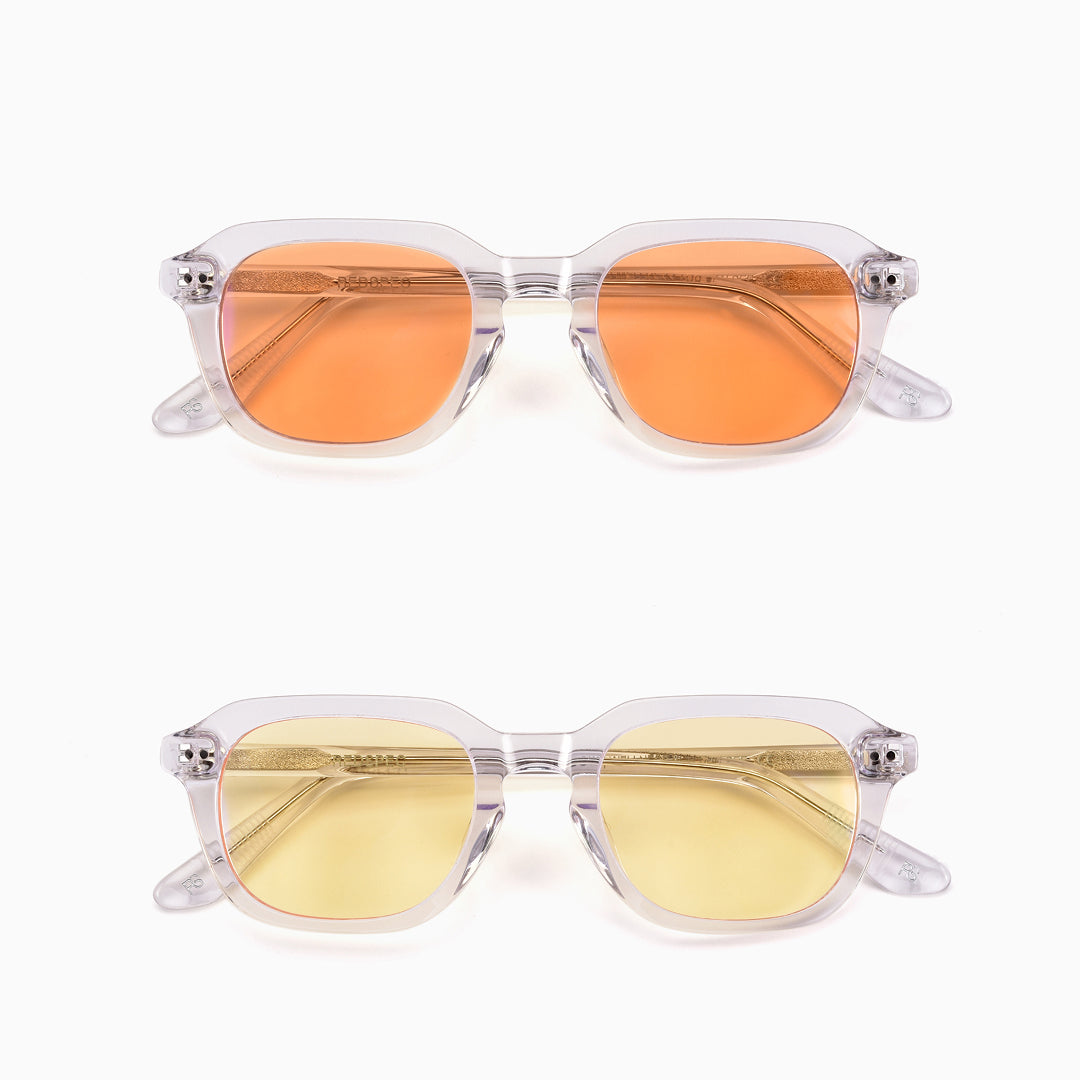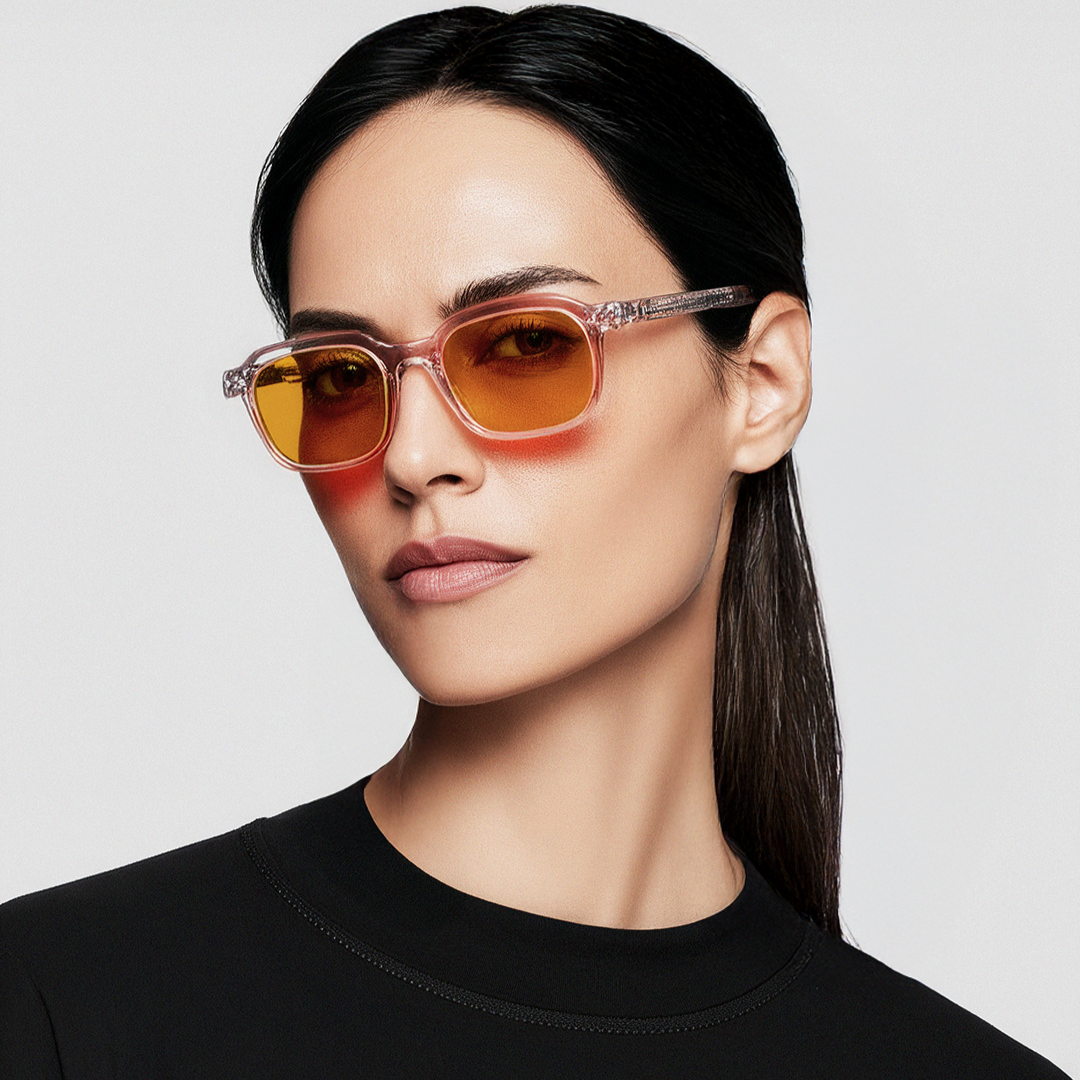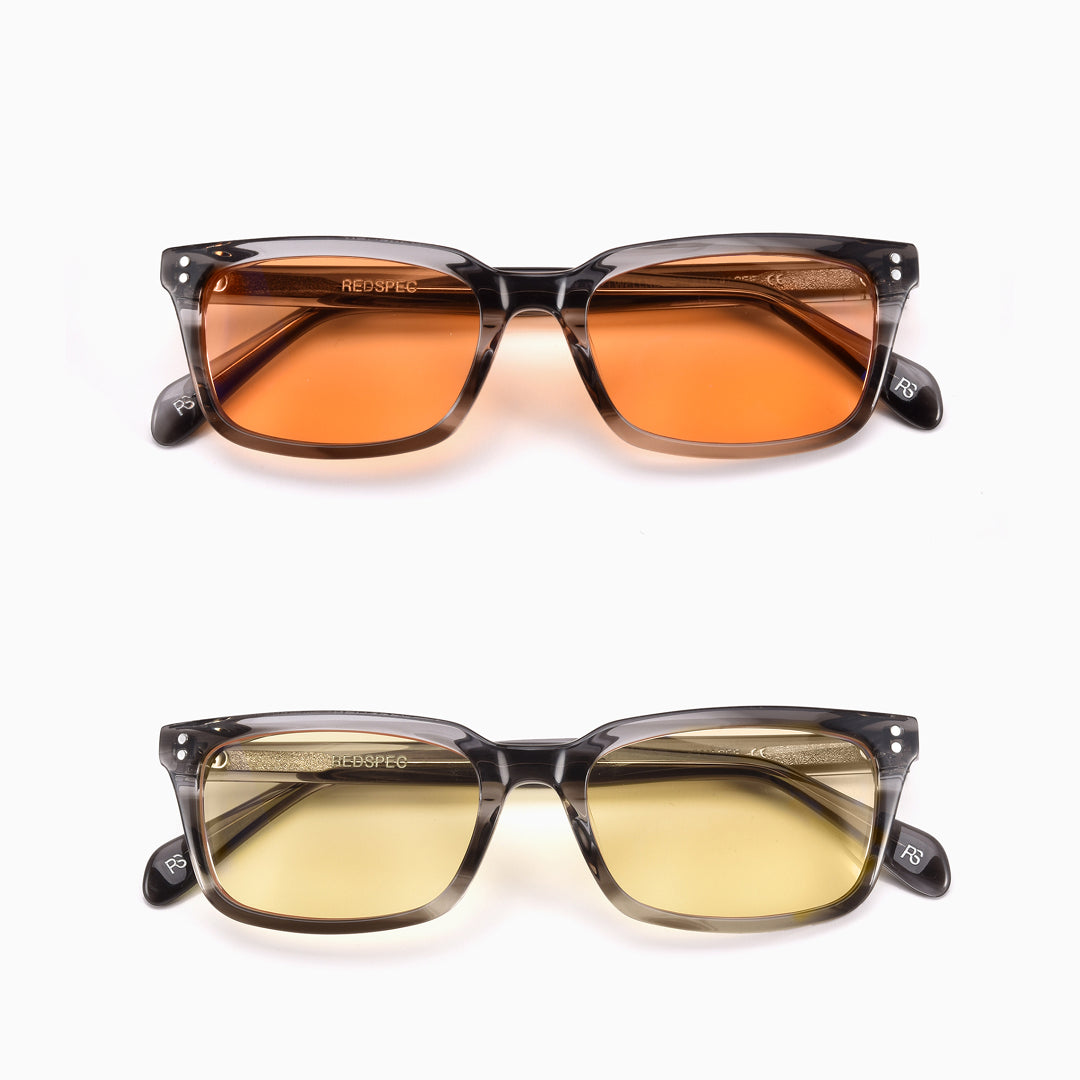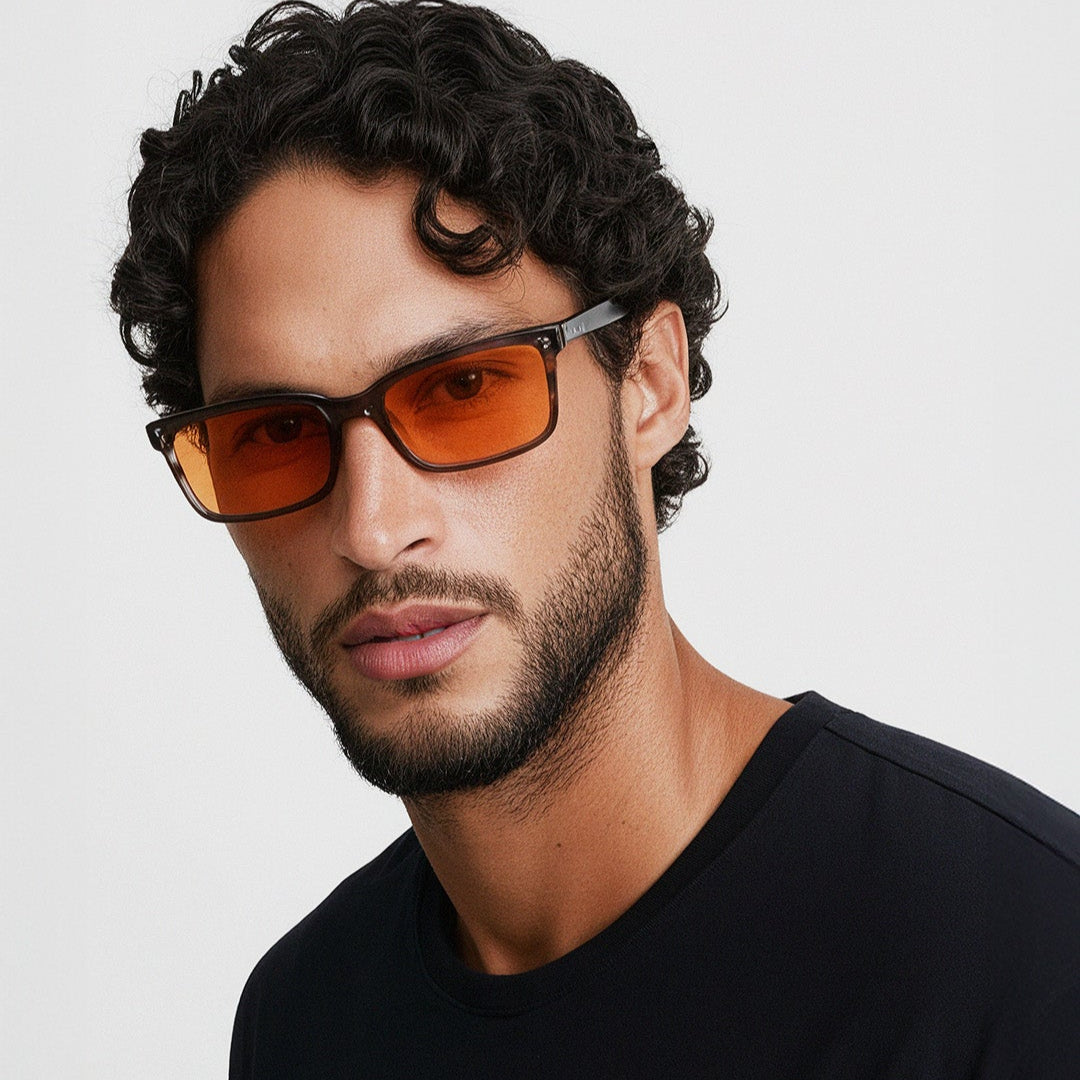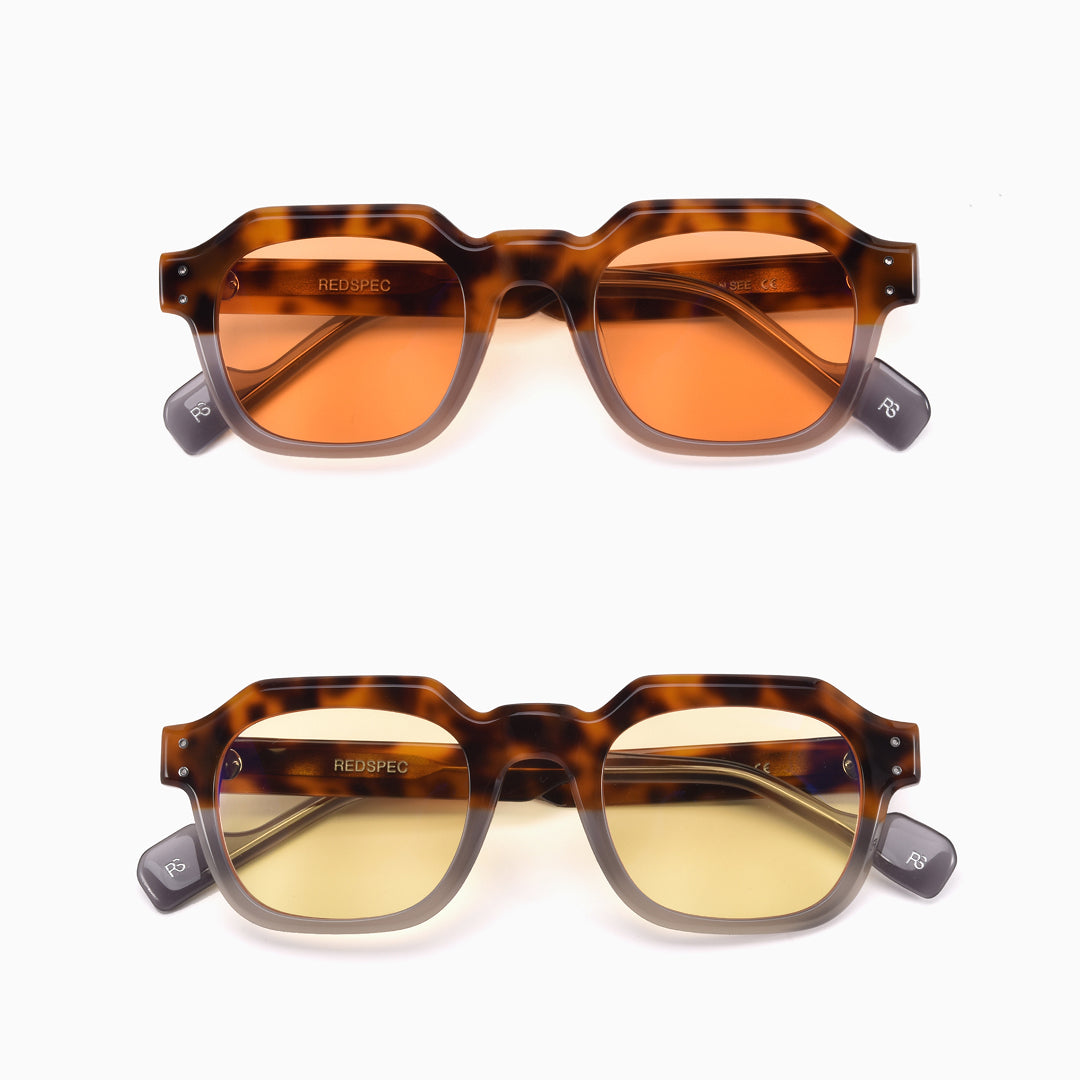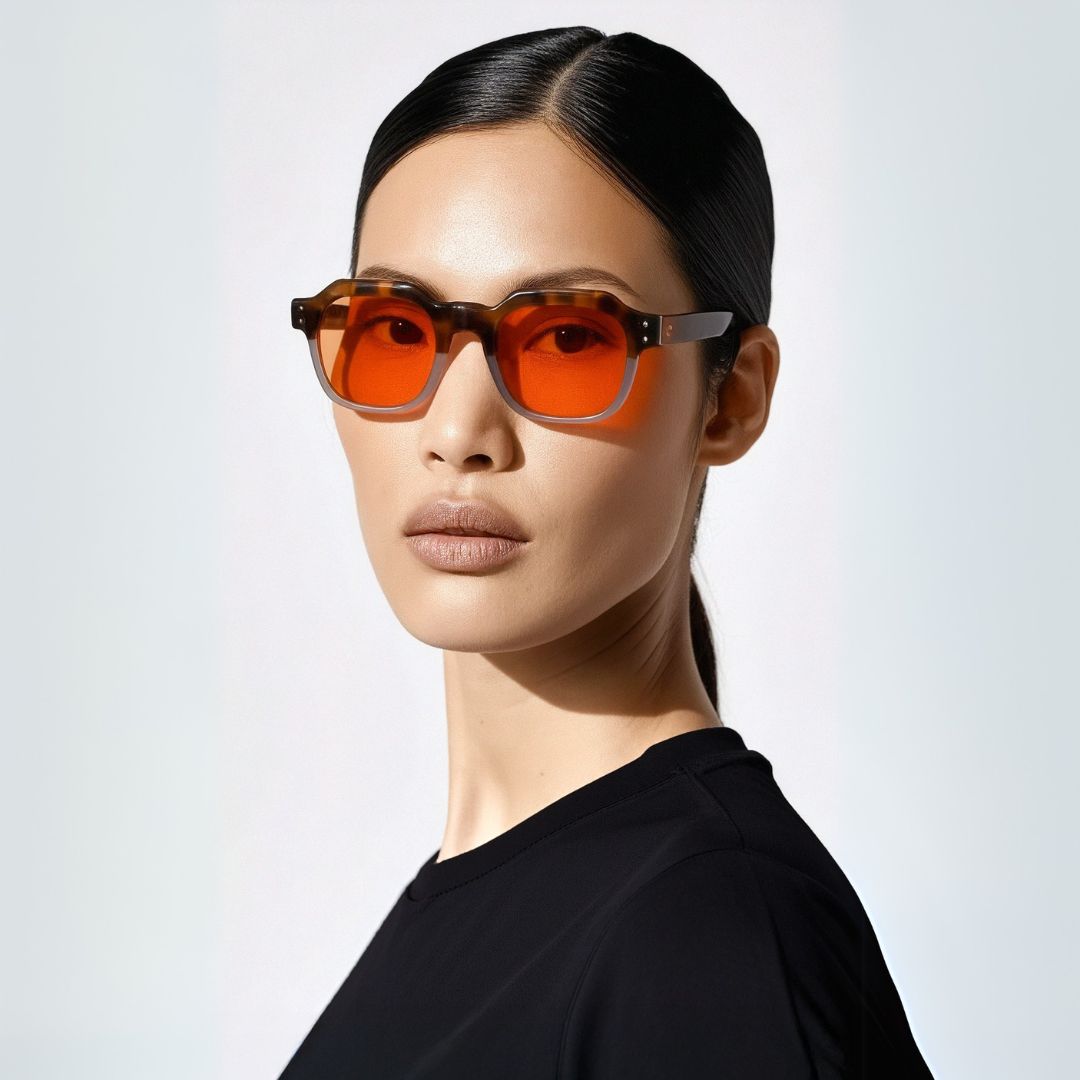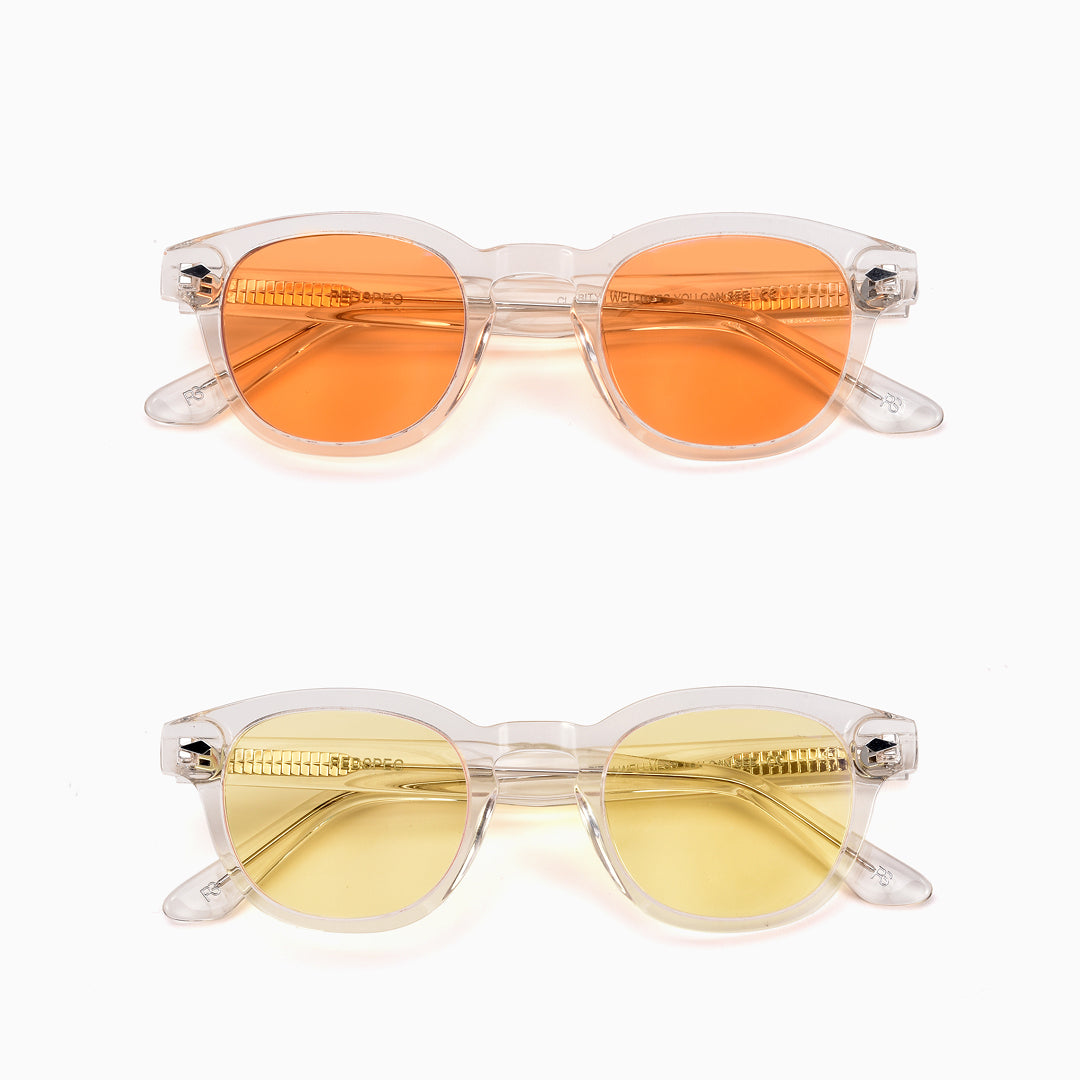
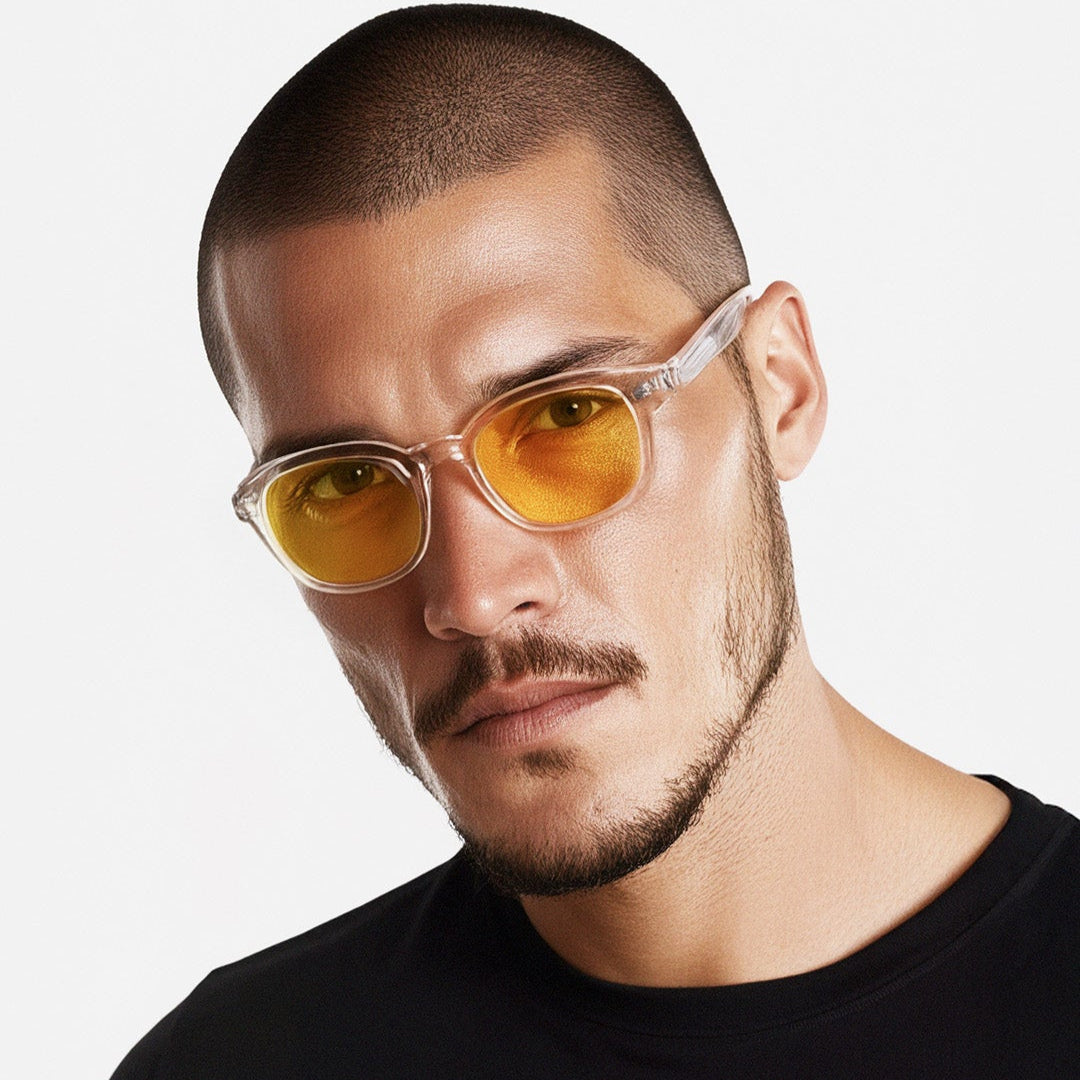
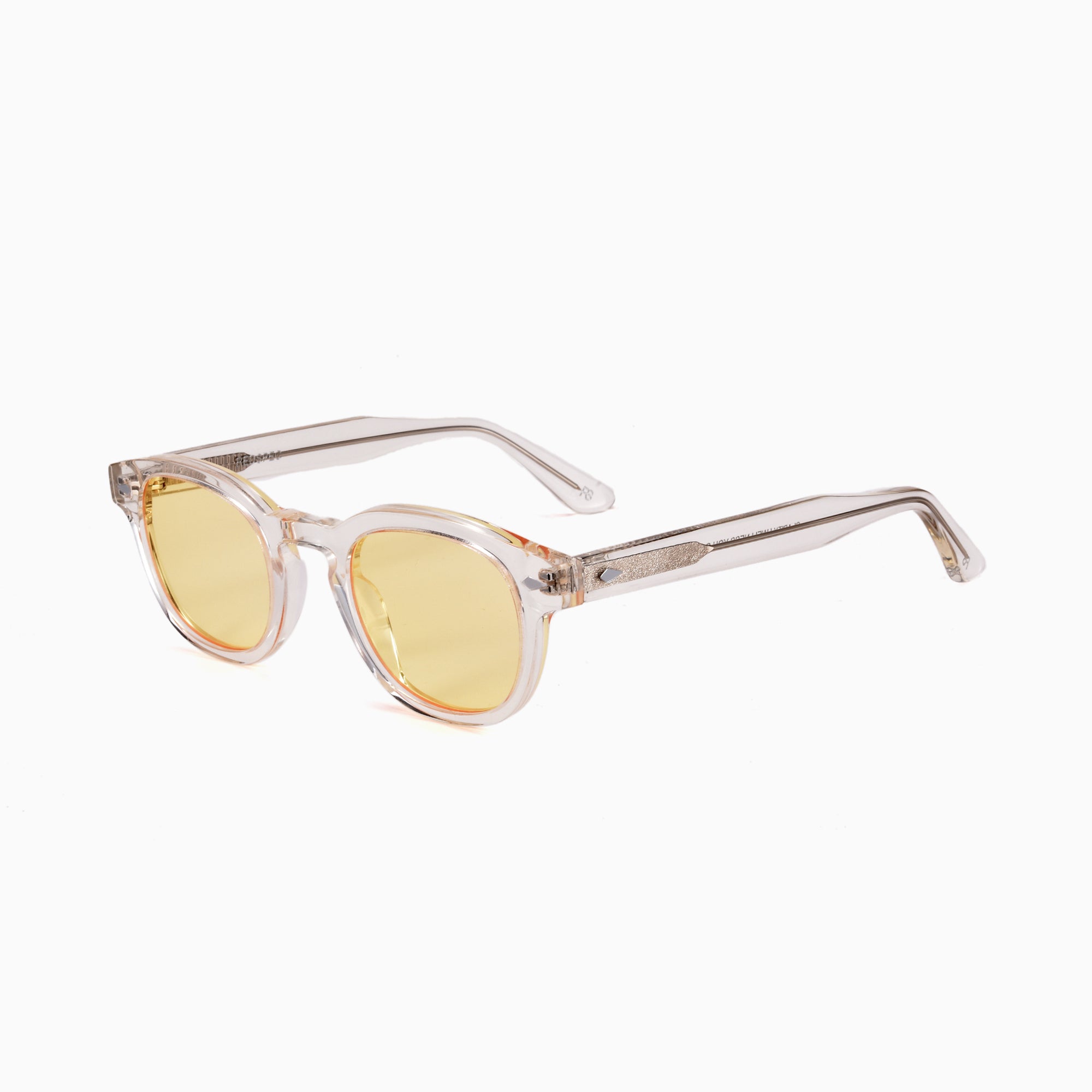
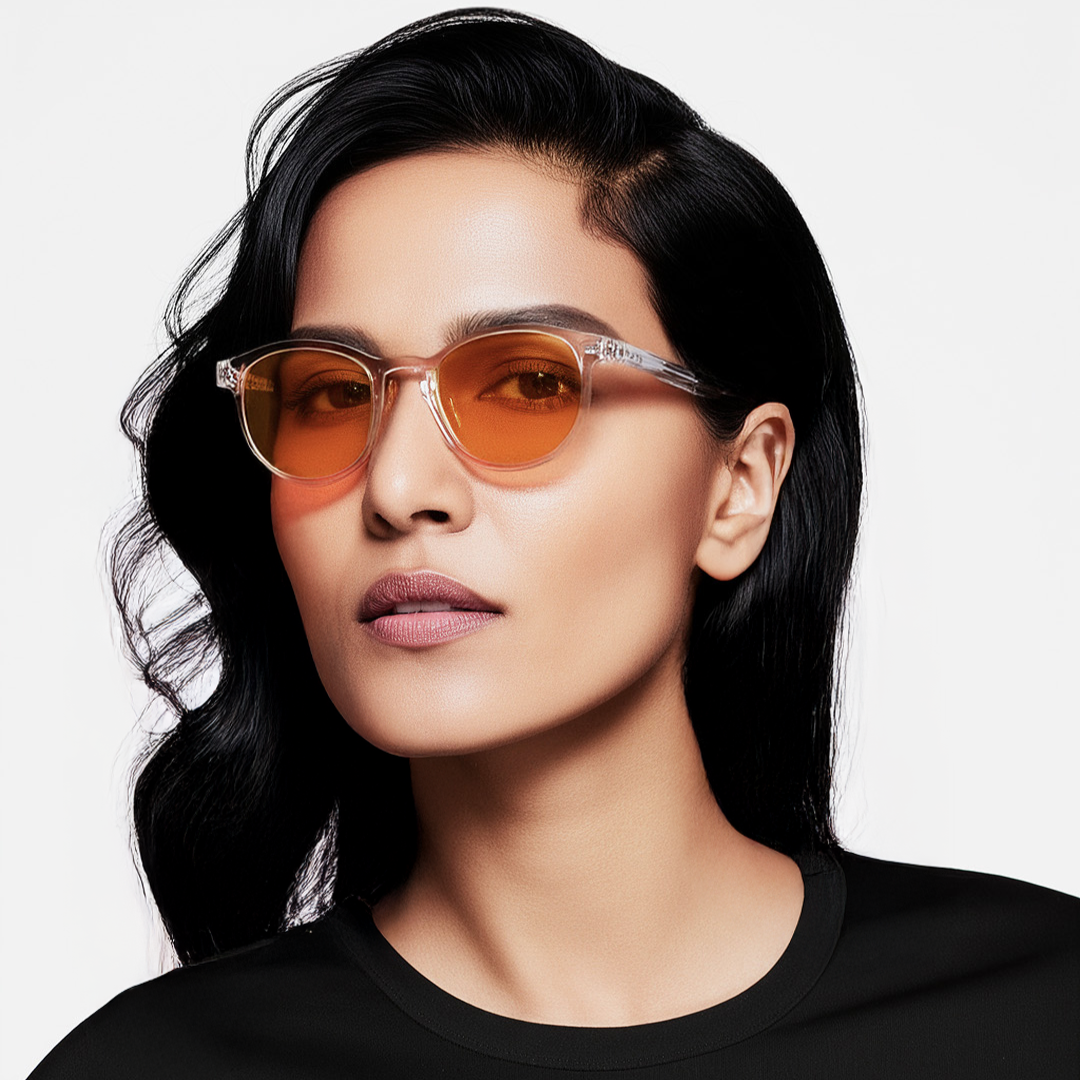
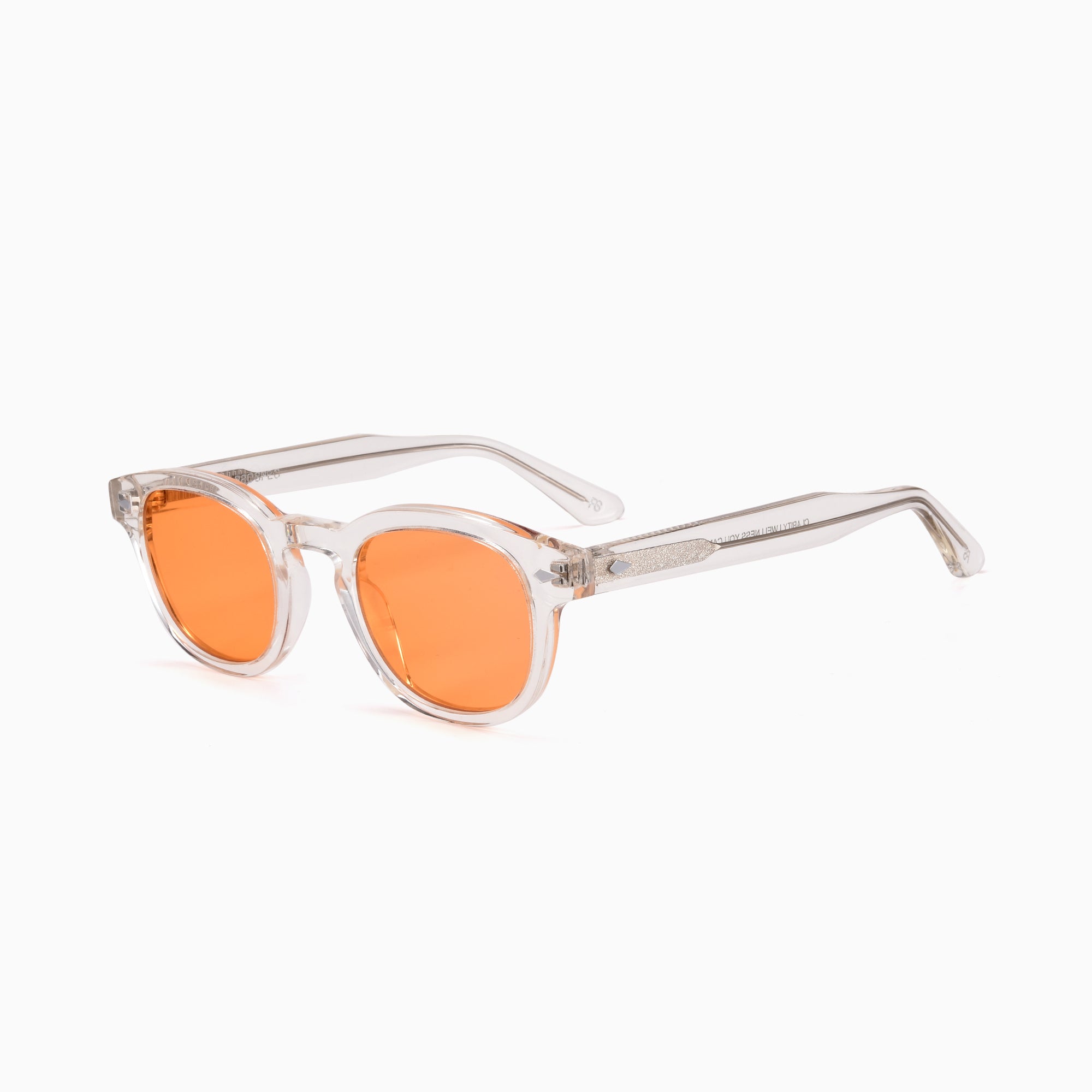
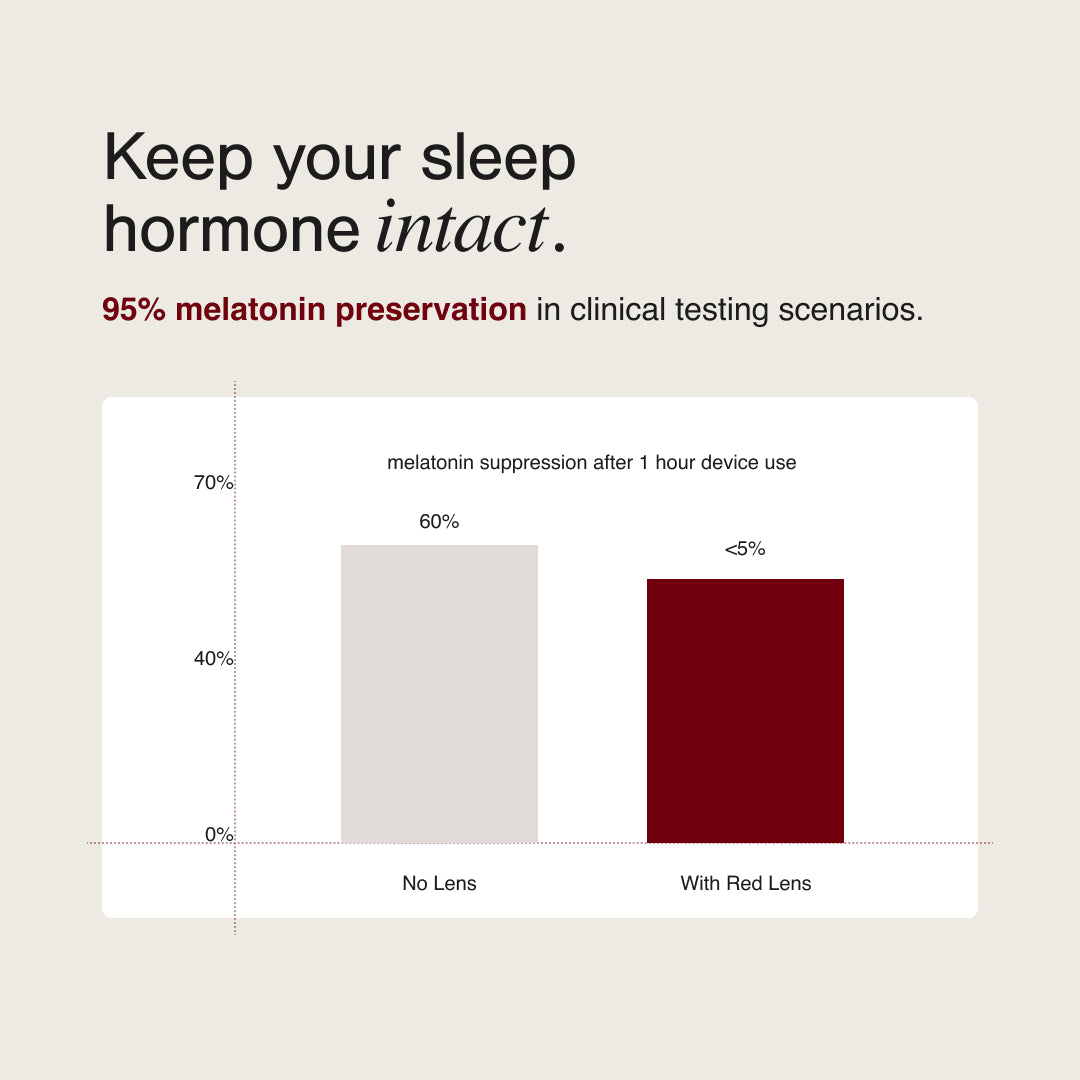
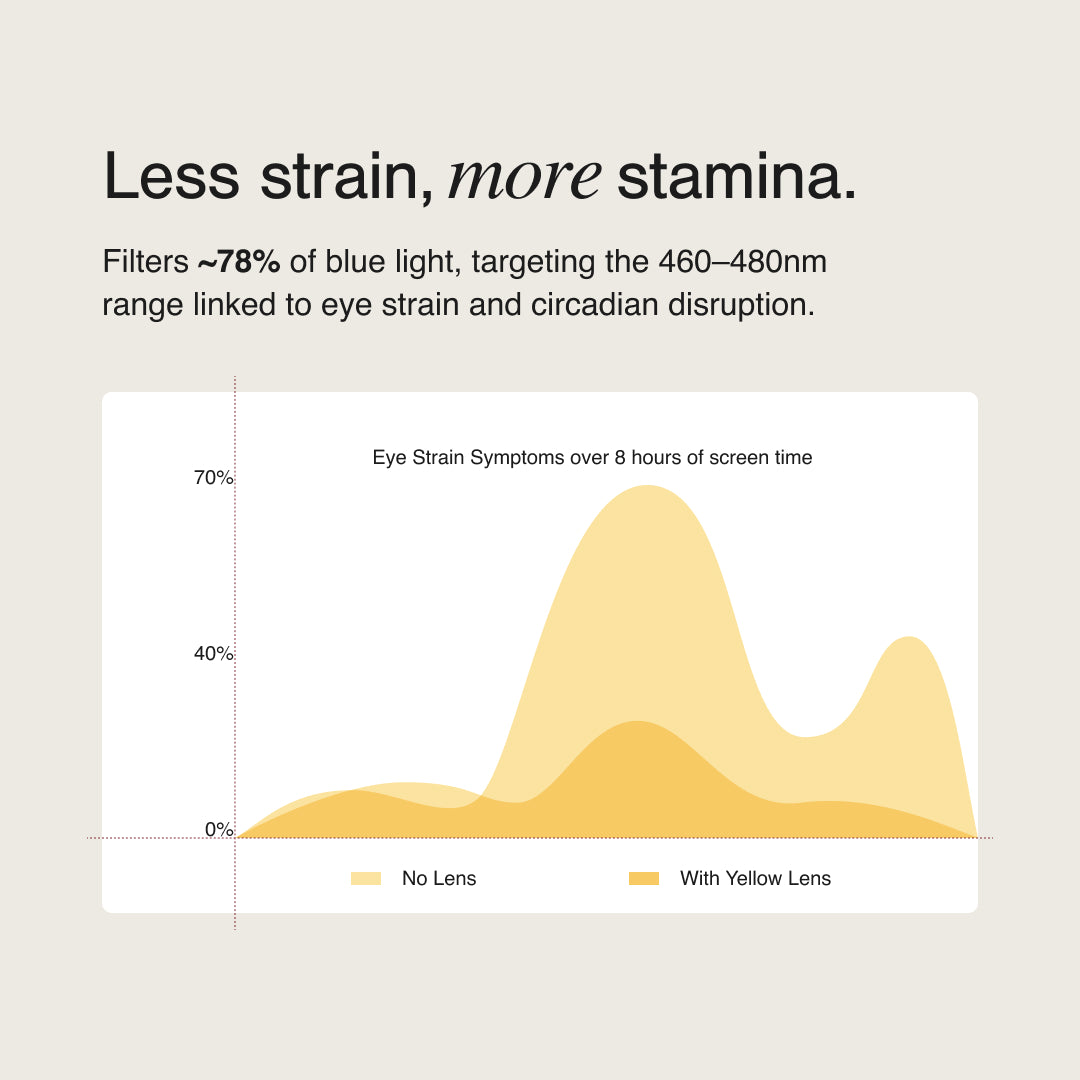
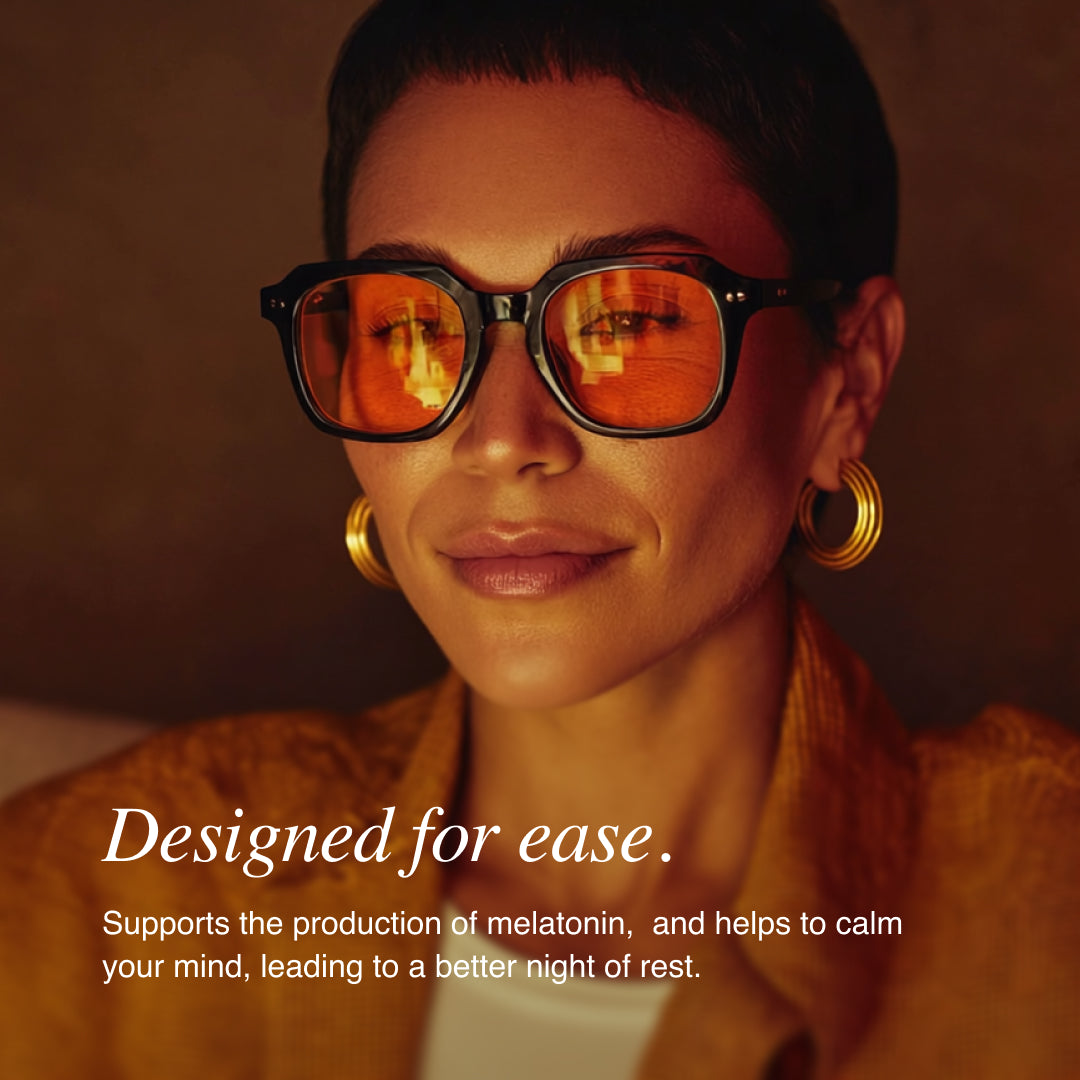
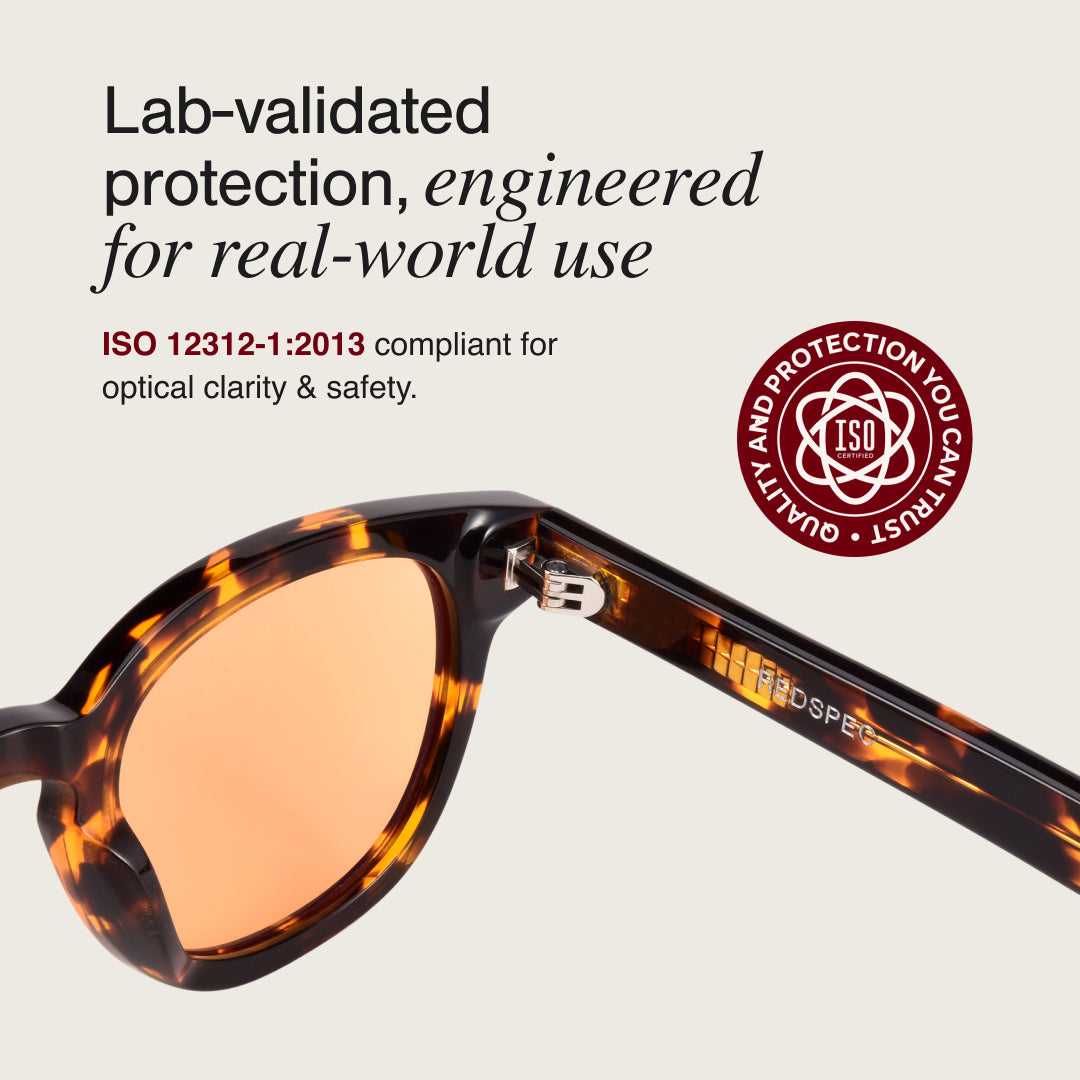
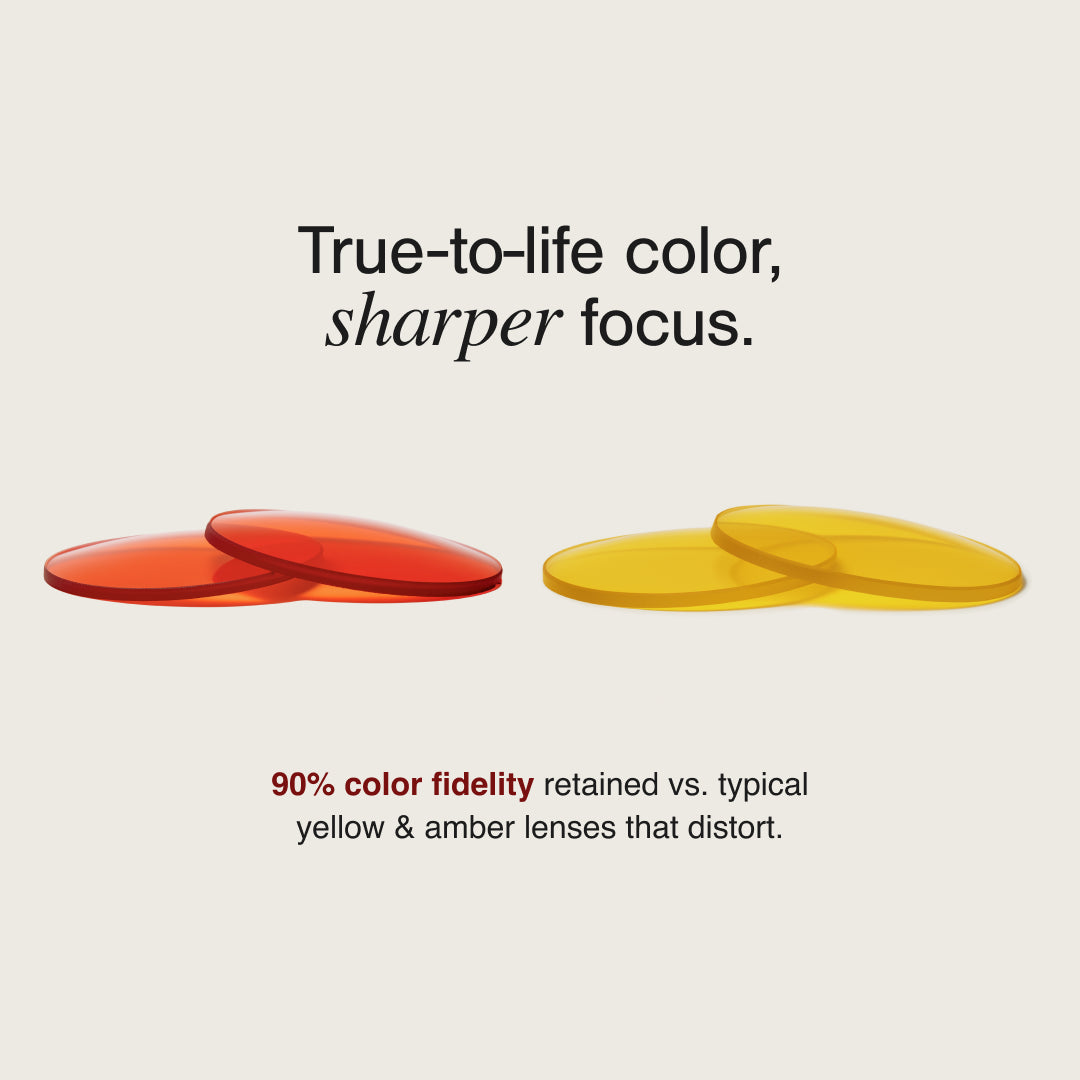
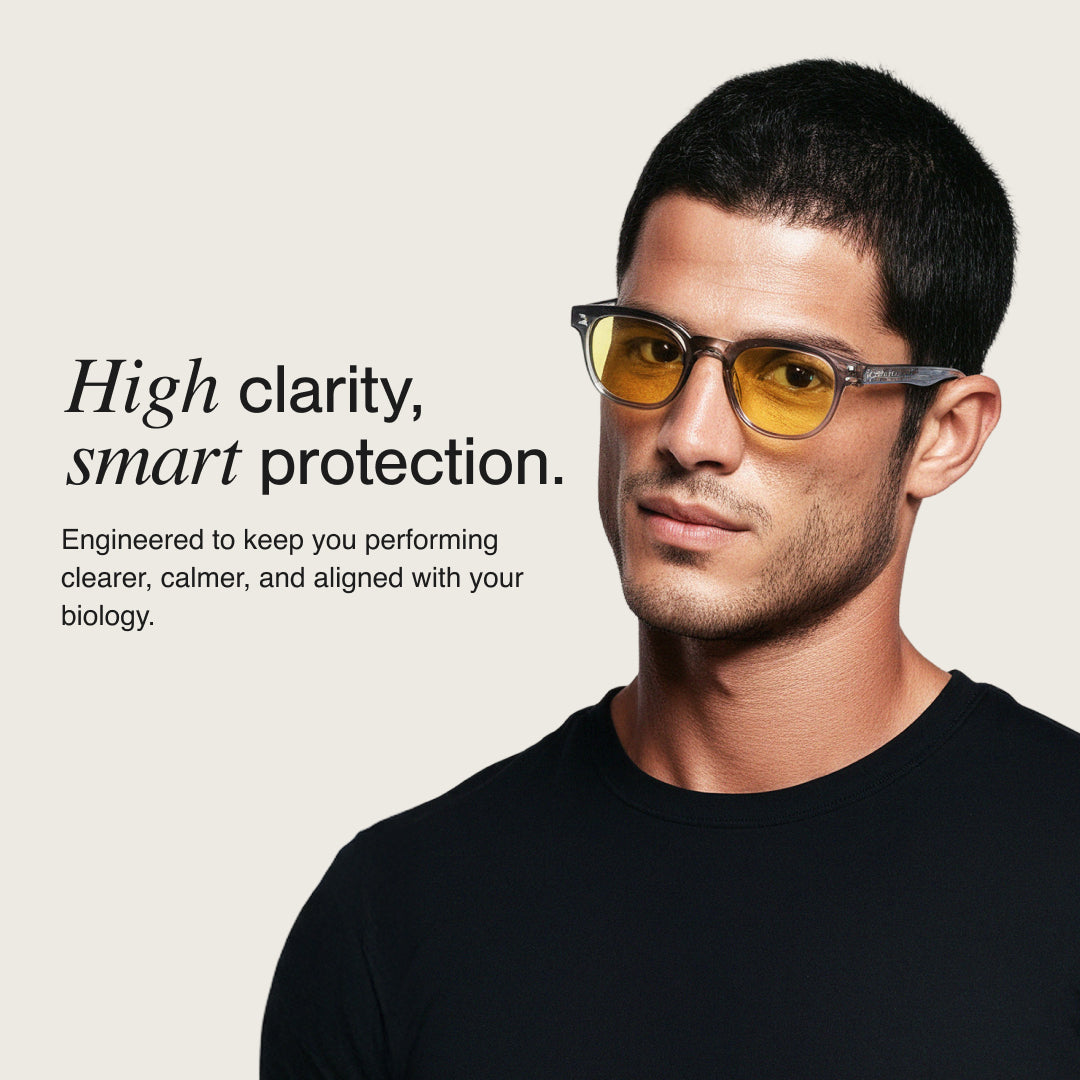
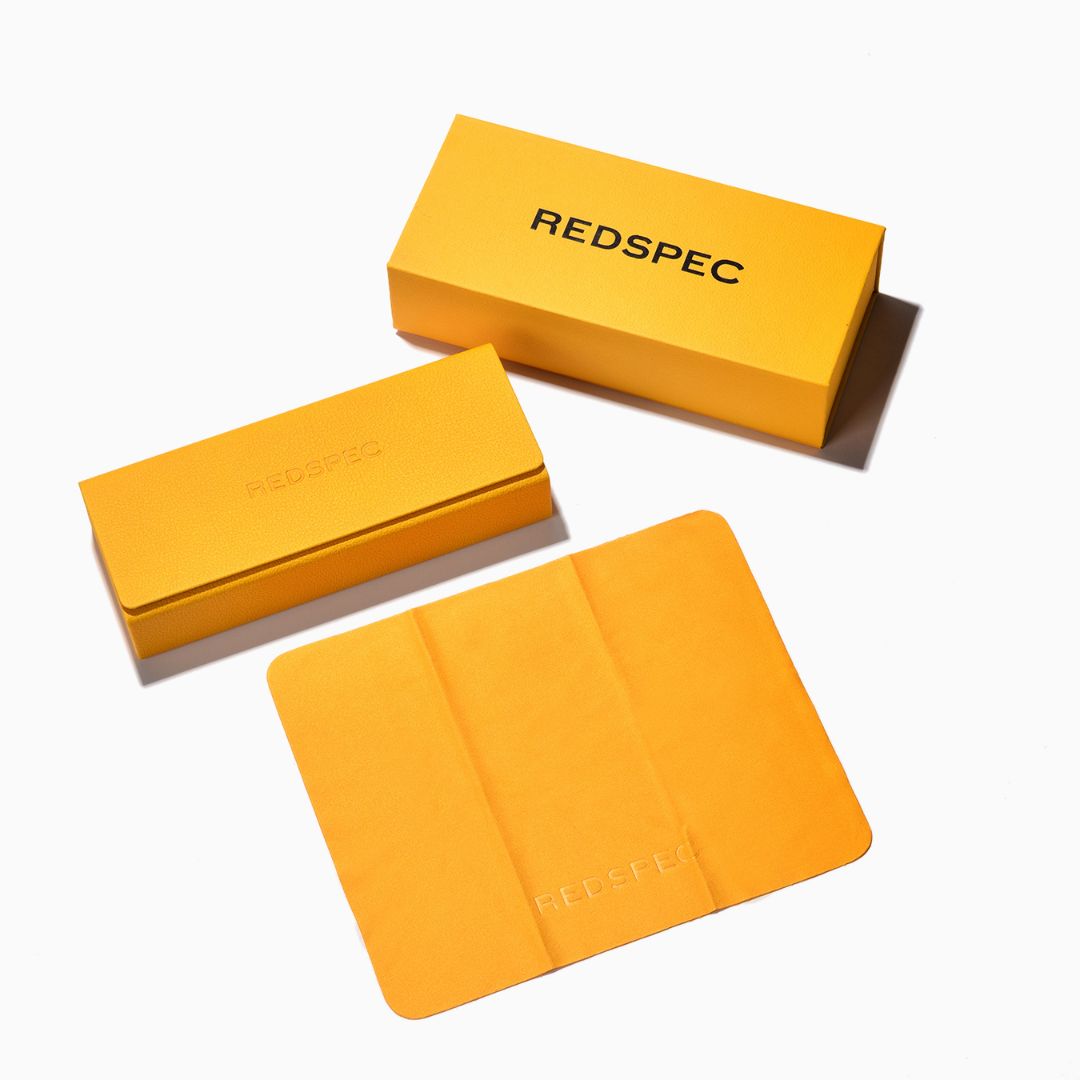
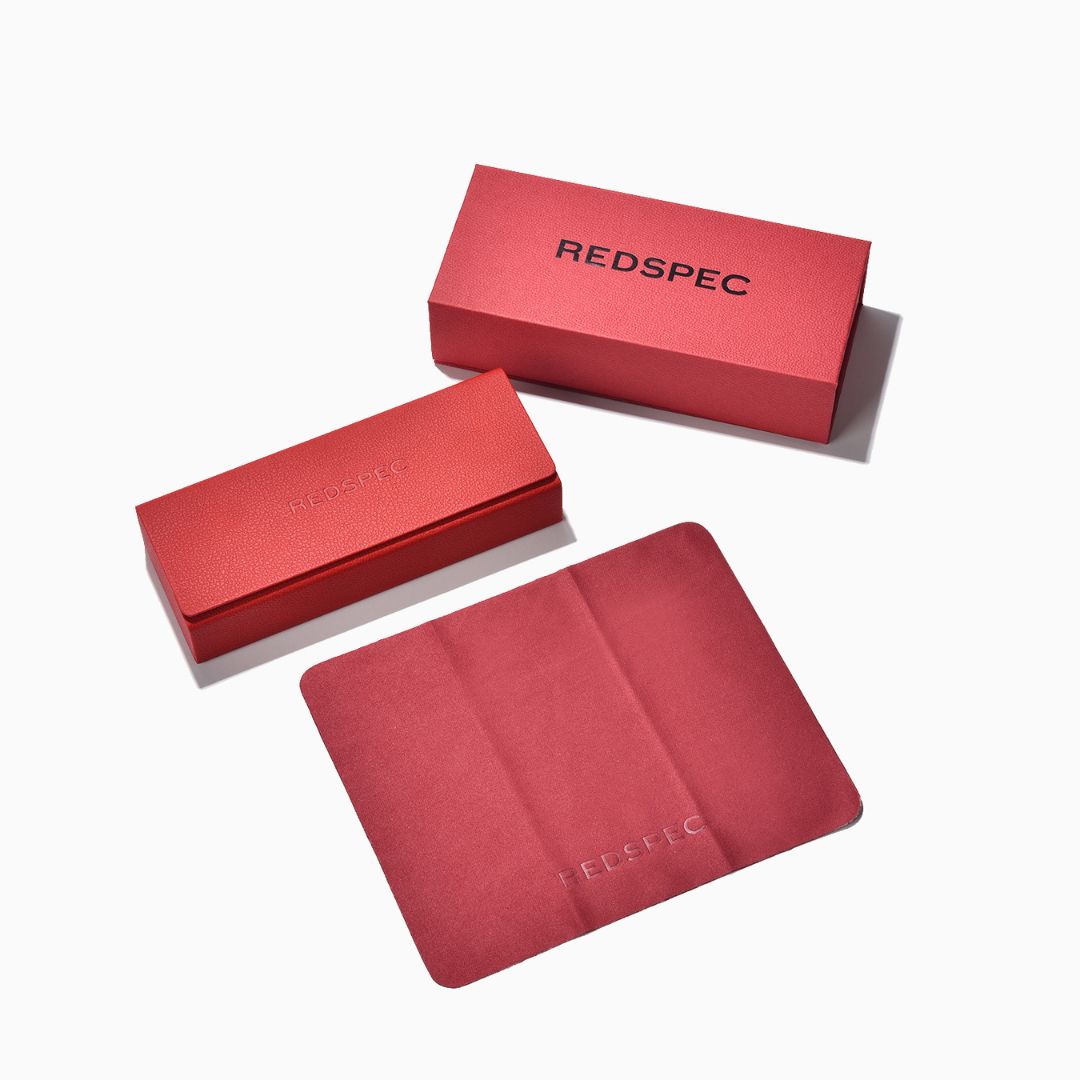
Clarity Bundle
Day Lens
Evening Lens
Description
Clarity blends a softly squared lens with subtle curves and clean geometry — a silhouette that flatters every face without shouting for attention. Lightweight acetate, a gentle keyhole bridge, and balanced proportions make it your go-anywhere, wear-everywhere staple.
Crafted from 100% bio acetate—a premium, plant-based material—our frames embody sustainable elegance. Rich in texture, biodegradable, and free from petroleum-based plastics, they unite timeless design with modern responsibility.















Precision by Day. Recovery by Night.
Our Circadian Set aligns your vision with biology: filtered clarity for daytime performance, red-spectrum calm for evening wind-down. Built for those who design their day down to the nanometer.

DAY LENSES
Modern light is misaligned with human biology. Blue wavelengths overstimulate the brain, disrupt melatonin, and strain the visual system—especially at night.
Cognitive Cost, Hidden in Plain Sight
Daytime screen use drives retinal overstimulation. Blue-enriched light from desktops increases oxidative stress in the eye and reduces contrast sensitivity—leading to visual fatigue and cognitive slowdown. Yellow lenses filter high-energy visible light, enhance contrast, and support sustained prefrontal engagement.
Circadian Drift, in Your Pocket
Phones emit short-wavelength light at unpredictable intensities—disrupting melanopsin receptors and distorting time perception. Even in daylight, this flicker can desynchronize alertness signals. The yellow lens stabilizes input, sharpens focus, and protects your neural rhythm—screen to screen.
Lock In
Our day lens filters the chaos—balancing clarity, contrast, and calm in overstimulating environments.

CALM UNDER PRESSURE
Less glare. Fewer headaches. More headspace. This lens helps your brain process better—with less noise and more focus.
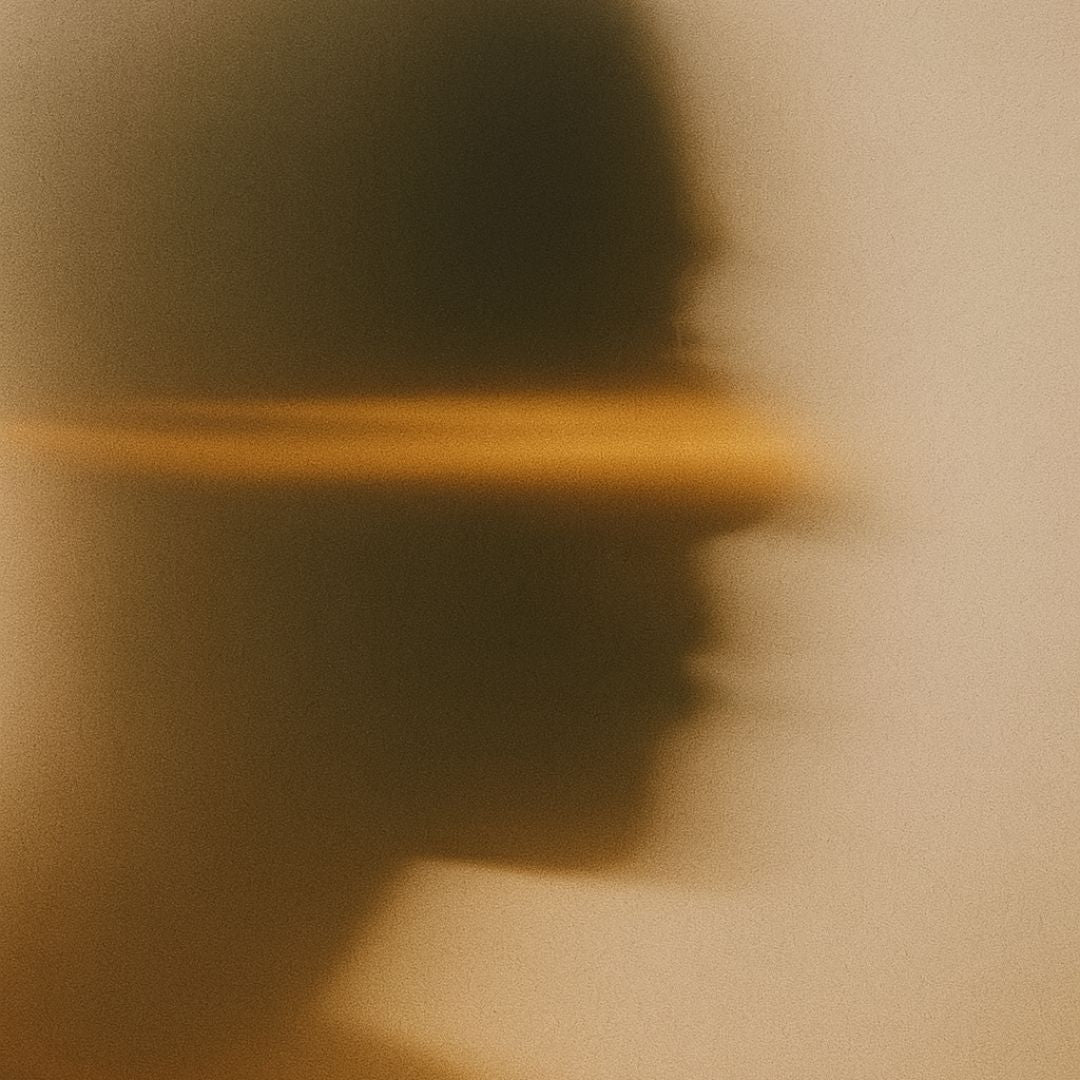
BUILT FOR BRIGHT DAYS
Natural or artificial, harsh light taxes your system. Our yellow tint reduces blue-light overload to ease eye strain and support mental clarity.
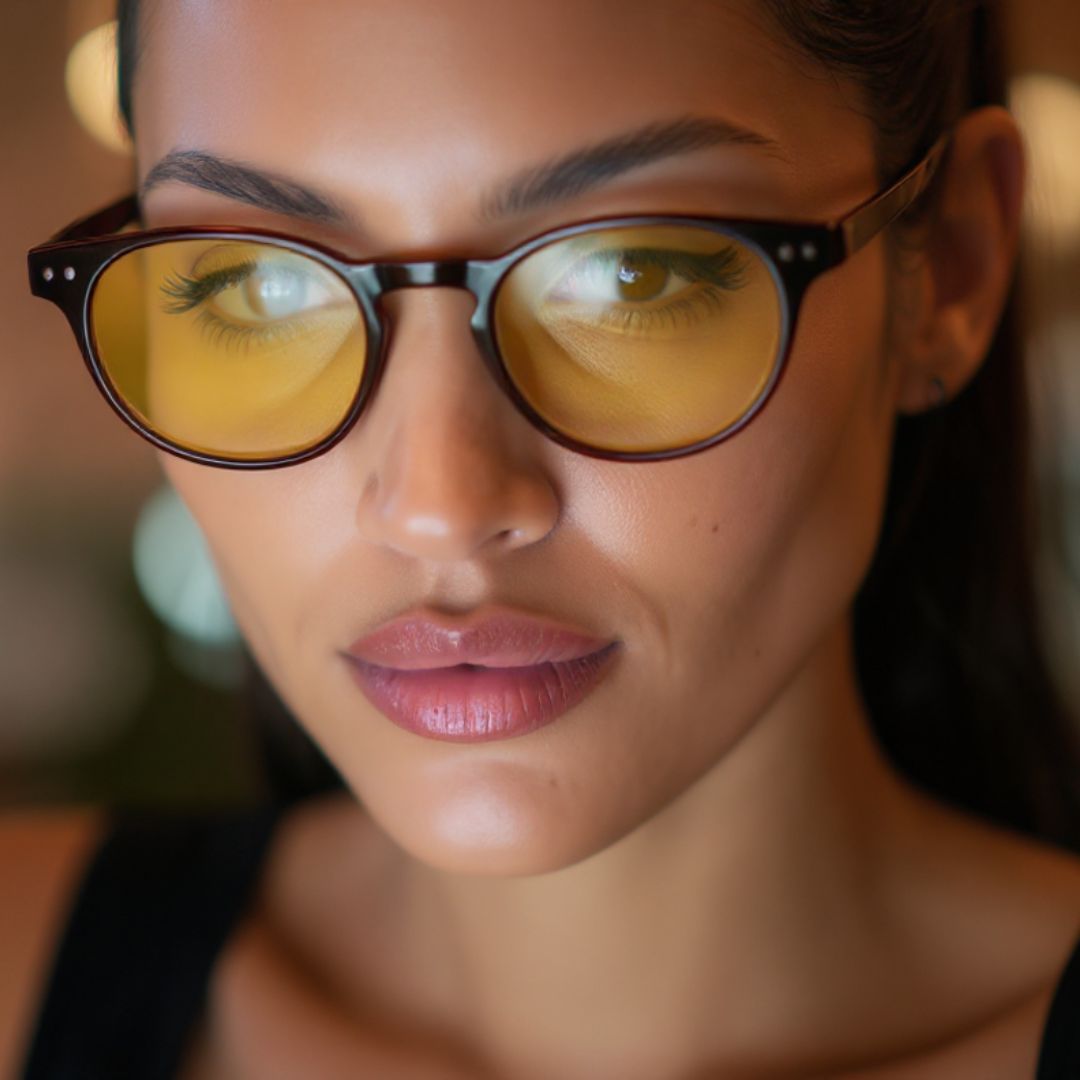
CLARITY WITHOUT COMPROMISE
You stay sharp. Colors stay true. Our lens preserves contrast and visual fidelity—so you can perform without distortion, all day long.
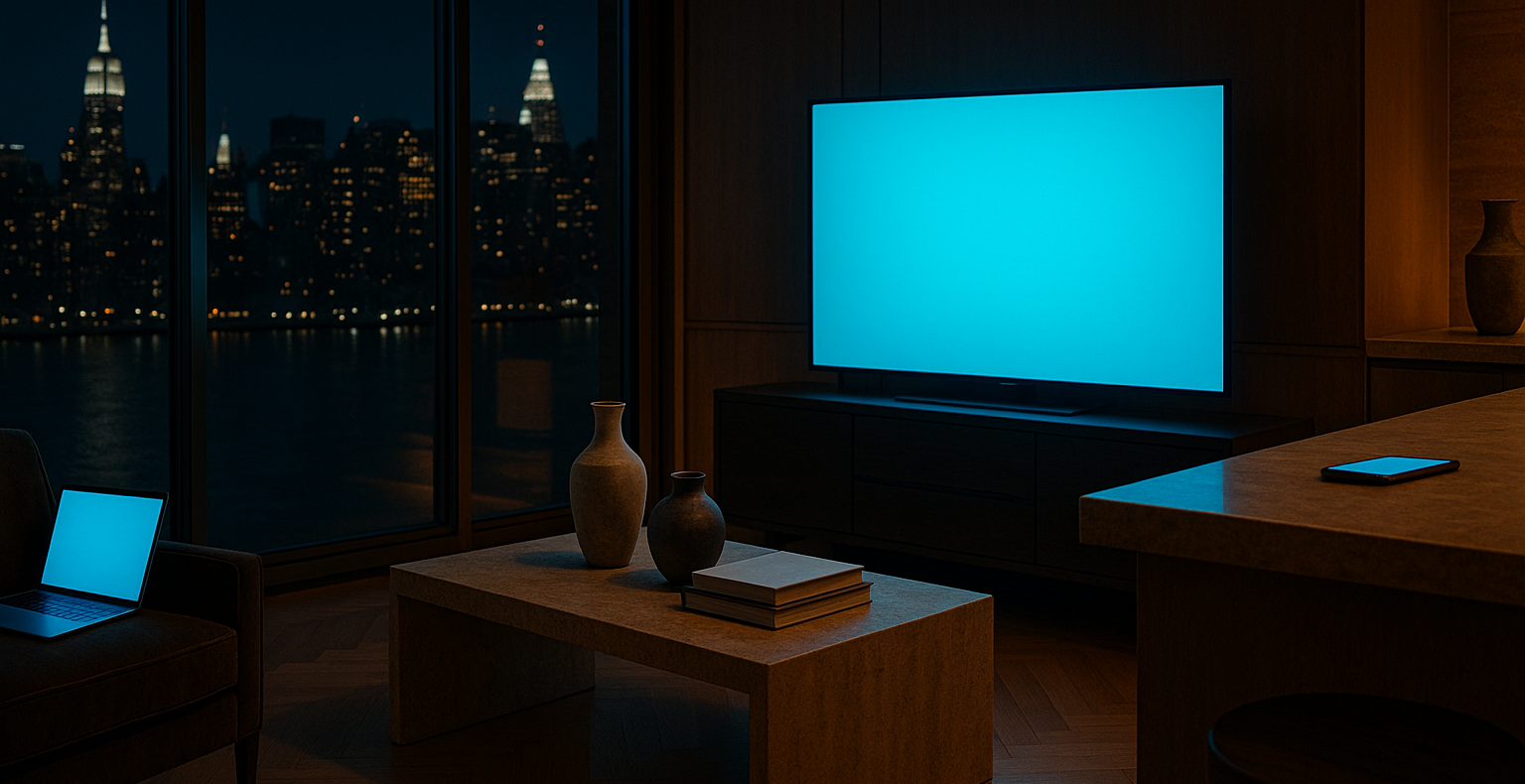
EVENING LENSES
Modern light is misaligned with human biology. Blue wavelengths overstimulate the brain, disrupt melatonin, and strain the visual system—especially at night.
Hidden Strain
Your laptop’s brightness is calibrated for clarity—not circadian health. Evening use delays melatonin release and overstimulates the brain’s alertness pathways.
Small Screen, Big Signal
Phones compress high-intensity light into a short distance from your eyes. That overstimulation tells your brain it’s daytime—right when it should be shifting into rest mode.
Brightness Without Boundaries
Large-format screens flood your system with blue light—stimulating alertness at the exact moment your body needs to power down. RedSpec filters help recalibrate your internal clock.
Wind Down
Our evening lens helps your brain recover from a world that stays lit too long, too bright, too blue.

RECOVERY BEGINS BEFORE SLEEP
Your system doesn’t shut off—it downshifts. Our evening lenses ease late-day stimulation so your body can move from alert to at ease.

CALM THROUGH COLOR
Color isn’t just aesthetic—it’s information. Our red tint signals your brain to slow down, soften tension, and prepare for rest.

DESIGNED FOR DOWNSHIFT
Slip them on. The world dims, and you do too. This is your cue to disconnect, drop in, and recover—without friction.
More Questions?
Clear answers for curious systems. Explore how our lenses helps recalibrate your biology—one wavelength at a time.
Day Lens
It filters harsh blue light to reduce overstimulation, improve contrast, and support sustained mental clarity during the day.
By filtering ~45% of blue light (especially the 460–480nm range), it reduces visual noise—so your brain stays sharp, calm, and locked in longer.
It targets high-energy visible (HEV) light between 380–500nm, the range most associated with digital eye strain, photophobia, and circadian disruption.
Wear them during the day, especially under artificial lighting or while using screens. Ideal from sunrise to late afternoon.
Yes. They're optimized for indoor use but also help under intense daylight by softening glare without dimming your environment.
Not at all. With 90.38% light transmittance and calibrated spectral cutoff, colors remain vibrant and accurate—just with less friction.
Yes. The yellow lens reduces photic stress, easing eye tension and helping prevent the buildup that leads to cognitive fatigue or headaches.
Evening Lens
Our night lens is engineered to block short-wavelength light—primarily in the blue and green spectrum—to reduce photic stress, protect circadian integrity, and help your nervous system wind down. It’s a physiological tool for sleep readiness and recovery.
By filtering out wavelengths under 500nm (especially the 460–480nm range), the lens helps preserve melatonin production and reduces overstimulation—two critical factors in falling asleep faster and sleeping deeper.
Our red lens filters approximately78% of light under 500nm, including HEV blue and parts of green light. It offers aTsb (blue light transmittance) of 22.19%, meaning over77% of HEV light is blocked.
Short wavelengths (blue/green) are interpreted by your brain as daylight. They suppress melatonin and trigger alertness—keeping your nervous system wired when it should be resting.
Absolutely. They’re designed for screen-heavy evenings—filtering artificial light from phones, laptops, and TVs to help your brain disengage and your body prepare for rest.
For best results, begin wearing them1–3 hours before your intended bedtime. This aligns with your natural melatonin curve and cues your system to wind down biologically—not just mentally.
RedSpec Red lenses reduce late-day neural arousal by lowering photic input and have been linked to increasedLate Positive Potential (LPP)—a brainwave associated with emotional regulation and nervous system calm.
Why It Works
Built on circadian biology and neural optics. Engineered to protect your system from overstimulation.
